

The Critical Data Lab is a space for digital critiques and critiques of the digital.
About the Lab
The Critical Data Lab (CDL) explores the politics and power of digitality on the grounds of a critical-theoretical approach towards data and the digital.
Combining a variety of disciplinary backgrounds and taking particular inspiration from Critical Data Studies, the Lab critically analyses the political, economic, social and cultural implications of digital media and networked technologies. Our aim is to promote critical interventions in theory and practice.
CDL was founded in 2022. While the Lab has been institutionally hosted by Humboldt University from the beginning, since the end of 2024 it is collaboratively hosted by Humboldt University Berlin and Carl von Ossietzky University Oldenburg.
The Lab’s research activities revolve around, but are not limited to the following themes:
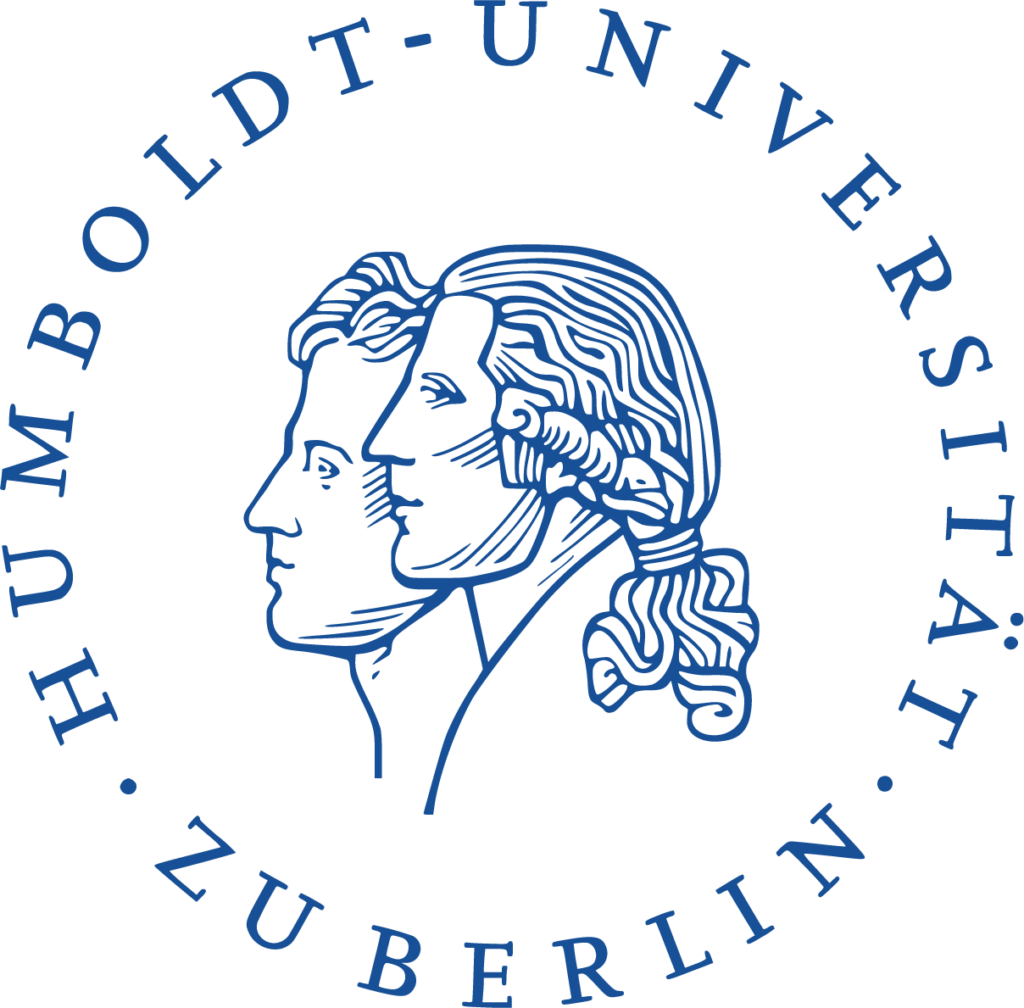
Institut für
Musikwissenschaft und
Medienwissenschaft /
Digitale Medien
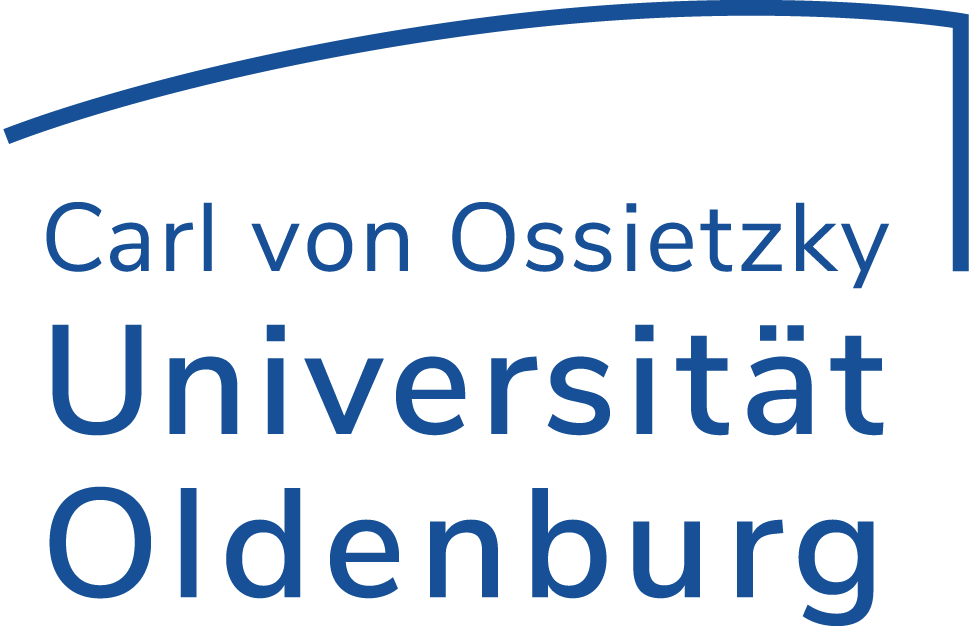
Institut für Philosophie Juniorprofessur Ethik der Digitalisierung

The politics of data
As our societies are ever more shaped by digital environments that give rise to data inequalities and algorithmic injustice the Critical Data Lab explores how digitality is not neutral but political. While investigating the politics of the digital we also analyse how politics changes in the digital age.
The power of data
The contemporary digital condition is shaped by asymmetric regimes of power, Big Tech monopolies, and the platform economy. We investigate the particular forms and ambivalences of power––from epistemic, infrastructural, and network power to digital governmentalities––that define the technopolitical and socioeconomic status quo and the counter-powers that emerge to resist it.
Data and Critique
What is the place for critique in the digital constellation and how is critique changing under conditions of digitality? How can we redefine a contemporary critical theory of digitality? How can we envision critical data practices that deconstruct established hegemonies in the digital sphere?
Data Imaginaries
Digital futures are already here, they are just unevenly distributed. How can we bring about just and equitable data futures that escape the lure of digital capitalism and overcome the current apparatuses of surveillance and capture without relapsing into the ideology of tech-solutionism?
People
Co-Directors
Upcoming Events
-

Anna-Verena Nosthoff
Anna-Verena Nosthoff is junior professor of philosophy and digital ethics at Carl von Ossietzky University Oldenburg and a permanent affiliated researcher at the Institute of Network Cultures in Amsterdam. Prior to that, she held fellowships, teaching and research positions at Princeton University, the LSE, the Weizenbaum Institute for the Networked Society, the University of Vienna, FU Berlin and the University of Basel. Anna has published on the digital transformation of the public sphere, the power of Big Tech, the politics of social media, the platform economy, as well as critical theory, the philosophy of technology and the history of cybernetics, in international journals such as Cultural Politics, Culture, Theory & Critique, Philosophy & Social Criticism, Thesis Eleven, Digital Culture & Society, Critical Research on Religion, Jahrbuch Technikphilosophie, Leviathan, Behemoth, Zeitschrift für Politikwissenschaft and various edited volumes. She is the author of “Die Gesellschaft der Wearables” (“The Society of Wearables”, co-authored with Felix Maschewski). She also works as an essayist for, a.o., ZEIT (Online), Die Republik, FAS, Philosophie Magazin, Deutschlandfunk Kultur, Jacobin, Dissent, Public Seminar and Internazionale. Her forthcoming book is “Kybernetik und Kritik” (under contract with Suhrkamp, forthcoming 2025).
Twitter: @annanosthoff
-

Felix Maschewski
Felix Maschewski is a literary, media and cultural theorist (HU Berlin), a teaching fellow at the university of Oldenburg and Co-Director of the Critical Data Lab. Currently he is also affiliated researcher at the Institute of Network Cultures (Amsterdam). Prior to that he held visiting and teaching positions at FU Berlin, University of Basel and at Princeton University. Apart from his academic writing (such as in Behemoth, Leviathan, Thesis Eleven, Digital Culture & Society, Philosophy & Social Criticism and other journals), he regularly writes essays for Frankfurter Allgemeine Sonntagszeitung, Republik, NZZ, Deutschlandfunk Kultur, Wirtschaftswoche, Philosophie Magazin, ZEIT Online among others. His most recent book is Die Gesellschaft der Wearables (co-authored with Anna-Verena Nosthoff, Nicolai 2019). He is also co-editor of the Behemoth special issues „Futures of Critique in the Digital Age“ (2021) and „Algorithms and Alterity“ (2022).
Twitter: @fmaschewski
Mastodon: mastodon.social/@fmaschewski
Past Events
Institutional Host
Upcoming Events
-

Shintaro Miyazaki
Shintaro Miyazaki has been junior professor of Digital Media and Computation (tenure track) at the sub-department for Media Studies of Humboldt University of Berlin since 2020 and Senior Researcher at the Institute Experimental Design and Media Cultures at the FHNW Academy of Art and Design in Basel since 2014. His recent book is “Digitalität tanzen” (transcript, 2022; English version: Counter-Dancing Digitality (meson press, 2023).
Past Events
Affiliates
Upcoming Events
-

Jan Groos
Jan Groos is a researcher, filmmaker and podcaster. He studied fine arts at the Academy of Fine Arts Vienna and completed his PhD in sociology on ‘Sociotechnical Imaginaries of Algorithmic Governance’ at the Centre for Sociological Theory (Kiel University). Jan is part of the DFG project ‘Governing Algorithms – A Sociology of the Algorithmic Art of Governing’ led by Prof. Robert Seyfert. In 2020 he visited The Weizenbaum Institute for the Networked Society as a research fellow and has stayed at the Remarque Institute (NYU) as a TEFE visiting fellow in fall 2024.
Jan is an affiliated researcher at the research cluster digital_cultures at Fernuniversität Hagen and the Critical Data Lab at Humboldt University Berlin. He runs the podcast Future Histories as part of his research practice.
-

Paola Lopez
Paola Lopez is a mathematician by training. Combining a mathematical perspective with legal philosophy, science and technology studies and gender studies, she is currently working on an interdisciplinary PhD thesis at the Institute of Legal Philosophy at the University of Vienna. She is also a visiting researcher at the Weizenbaum Institute for the Networked Society. In her research, she focuses on data-based algorithmic systems and their epistemic limitations as well as on their implications for equal treatment and questions of justice.
-

Dominik Piétron
Dominik Piétron is a research associate at the Department of Social Sciences at Humboldt University of Berlin. He works on the political economy of digital capitalism with a special focus on data and infrastructures. He is a member of the Alliance Digital City Berlin which seeks to promote democratic debate around digitization conflicts at the municipal level.
-

Magdalena Taube
Magdalena Taube is professor of Digital Journalism at the Macromedia University of Applied Sciences in Berlin and editor-in-chief of the internet newspaper Berliner Gazette. She is the author of Disruption des Journalismus (2018) published by Institute of Network Cultures, Amsterdam and co-editor of numerous readers, including A Field Guide to the Snowden Files (2017) published by Diamondpaper, Berlin and Invisible Hand(s) (2020) published by Multimedijalni institut, Zagreb.
-

Roberta Fischli
Roberta Fischli is a PhD Candidate at the University of St. Gallen, Switzerland, currently visiting the University of California Berkeley. Her research analyzes new forms of power in the digital economy and what this means for our idea of freedom. She holds a Masters Degree in Political Science (with a special focus on Political Economy and Philosophy), and a Bachelors Degree in Political Science and Modern History from the University of Zurich, Switzerland. Her work has been published in the European Journal of Political Theory, Morals and Machines, Republik, Neue Zürcher Zeitung, and Philosophy Now.
-

Ann-Kathrin Koster
Ann-Kathrin Koster holds a Masters Degree in Political Science (with a special focus in Political Theory) and Gender Studies. Her research interests lie particularly in the field of democratic theory, theories of the political, and the interrelationship between technology and democracy. From 2020 to 2022, she was a fellow at the Schaufler Lab@TU Dresden. Currently, she is a research associate at the research group „Technology, Power and Domination“ at the Weizenbaum Institute, Berlin.
-

Sebastian Berg
Sebastian Berg is a political theorist in the research group “Technology, Power, and Domination” at the Weizenbaum Institute for the Networked Society, Berlin and a member of “Politics of Digitalization” at the WZB Social Science Center. Previously, he held research and teaching positions at Helmut Schmidt University/University of the Federal Armed Forces Hamburg, FU Berlin & Princeton University. He works on ideas of digital democracy, civic technology and the post-liberal infrastructure of the digital state. His dissertation develops a critique of calculative regimes of political representation in the digital constellation.
-

Roland Meyer
Roland Meyer is a media and visual culture scholar with a research focus on the history and theory of digital image cultures. His most recent book Gesichtserkennung (Wagenbach 2021) deals with the cultural and social implications of automated facial recognition. In his current research, he focuses on digital image archives, navigable images, and the media archeology of augmented spaces. Currently, Roland is a researcher in the SFB 1567 Virtual Lifeworlds at Ruhr-University Bochum and lives in Berlin. Twitter: @bildoperationen
-

Lotte Warnsholdt
Lotte Warnsholdt is a cultural and media theorist, working on questions of temporality and critique in digital cultures. She studied European ethnology, minority studies, law and cultural studies at the University of Copenhagen, University of Hamburg and Leuphana University Lüneburg. She has recently completed her doctoral thesis, in which she examines the genealogy of predictive media and asks the question of how prediction challenges the conditions of the modern project of critique. Lotte has published on algorithmic governmentality, critique and (media) history.
-

Rafael Dernbach
Rafael Dernbach is a researcher in media studies and future studies at the Locarno Film Festival Chair for the Future of Cinema and Audiovisual Arts at Università della Svizzera italiana. His research is in the medial construction of futures and emerging media environments. He works on the question of how cinematic and post-cinematic experiences frame anticipations of the future. Previously, he worked as Director of Emerging Narratives at fischerAppelt advisors in Berlin, where he established a research unit on narrative strategy and foresight practices. He was a researcher and strategist at Europe’s first future museum Futurium in Berlin. In 2018, he completed his PhD at the University of Cambridge as a Bill and Melinda Gates Scholar on the post-cinematic art of Harun Farocki, Hito Steyerl and Neil Beloufa. He was a visiting researcher at Princeton University in 2016 and at Freie Universität Berlin in 2015.
-

Anna Puzio
Dr. Anna Puzio works on the philosophical anthropology and ethics of technology. She studied philosophy, theology, and German studies in Münster and Munich and completed her doctorate in Munich with a dissertation on the anthropology of transhumanism. After holding academic positions at the universities of Frankfurt am Main, Vienna, Oxford, Cambridge (UK), and the University of California, Berkeley, she is now based at the University of Twente in the Netherlands, where she works within the nationwide research programme Ethics of Socially Disruptive Technologies. Her research focuses on techno-ideologies, robotics, medical technologies, gender and diversity, new materialism, and the intersection of environmental and technology ethics. She is also the editor of the book series Religion and Artificial Intelligence (Springer).
Past Events
research assistant
Upcoming Events
-

Anna Kraher
Anna Kraher is a researcher and artist who explores the societal implications of artificial intelligence (AI) and Big Tech. Her research interests lie particularly in the interplay between AI ideologies, predictive analytics, and temporalities. She is a research assistant at the Ethics of Digitalisation Chair at Carl von Ossietzky University Oldenburg. Previously, she was affiliated with the ‘Ethics and Critical Theories of Artificial Intelligence’ research group at Osnabrück University, the Data Ethics Outreach Lab, and AlgorithmWatch. She studied Design & Computation, Computer Science and Gender Studies in Berlin.
Past Events
affiliated doctoral candidates
Upcoming Events
-

Julia Egenhoff
Julia Egenhoff is a philosopher whose research focuses primarily on the intersection of technology, gender, and embodied agency. She is currently conducting her dissertation project, which explores the impact of FemTech on gender identities and embodied power structures from a neo-materialist perspective. She examines how digital technologies shape body norms and thereby influence possibilities for action.
Past Events
student assistant
Upcoming Events
-

Tim Dickbertel
Tim Dickbertel is a student of sociology, political sciences and philosophy at Carl-von-Ossietzky-University of Oldenburg.
Past Events
Extended Network
Upcoming Events
-
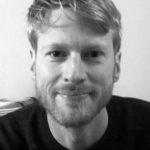
Tobias Matzner
Tobias Matzner is professor for „Media, Algorithms, and Society“ at the department of media studies at Paderborn University in Germany. His work combines theories of (digital) media and technologies with approaches from political philosophy, cultural studies, and social theory.
Recently, his research has been focused on the entanglement of technology with concepts of subjectivity, affect, and autonomy — with a particular focus on algorithms and machine learning. Earlier (and related) research has been dealing with normative theories of privacy. Before joining Paderborn University Tobias has been working at the Internatial Centre for Ethics in the Sciences and Humanities in Tübingen and at the department of philosophy at the New School for Social Research in New York as a Feodor Lynen Fellow of the Humboldt-Foundation.
-

Eugenia Stamboliev
Eugenia Stamboliev is a media scholar and critical philosopher at the University of Vienna. She works on ethical and political issues of artificial intelligence and algorithmic/data structures. Her current fellowship deals with the influence of complex algorithmic structures (like covid models) on democracy. She holds degrees in Legal Studies, Communication and Media Studies, and Philosophy, but her thinking is also shaped by her studies in German-Jewish poetry, her father’s obsession with Michel de Montaigne, her mother’s socialist thinking and her polyglot upbringing.
-

Geert Lovink
Geert Lovink is the founding director of the Institute of Network Cultures and Professor of Art and Network Cultures at the University of Amsterdam. As theorist, activist and net critic, Lovink has made an effort in helping to shape the development of the web. Geert Lovink is the author of many books, including Uncanny Networks (2002), Dark Fiber (2002), My First Recession (2003), Zero Comments (2007), Networks Without a Cause (2012), Social Media Abyss (2016), Organisation after Social Media (with Ned Rossiter, 2018), Sad by Design (2019), and Stuck on the Platform (2021).
-

Wessel Reijers
Wessel Reijers is a philosopher, specialised in philosophy and ethics of technology, hermeneutics, and responsible innovation. Currently, he is a postdoctoral researcher at the University of Vienna and previously he was a Max Weber Fellow at the European University Institute, in Florence. Wessel’s research focuses on the political philosophy of blockchain technology and the Social Credit System, the intersection between citizenship and cybernetics, and developing a hermeneutic theory of technology. He has co-authored two books, Narrative and Technology Ethics (Palgrave) and Interpreting Technology (Rowman and Littlefield) and has a book titled Blockchain Governance forthcoming (MIT Press).
-

Maxim Keller
Maxim Keller is a research associate at the Rat für Digitale Ökologie (Council for Digital Ecology) and works at the various social and political intersections the digital transformation engenders. As a PhD student in the DOK program at the University of St. Gallen, he is exploring past episodes of resistance to information technologies, looking to gain historical insight that also matters for understanding the current workings and issues of the «digital civil society».
-

Özgün Eylül İşcen
Özgün Eylül İşcen is an affiliated research fellow at the ICI Berlin and a lecturer at Humboldt University. She holds a PhD in Computational Media, Arts and Cultures from Duke University. Her current research builds upon the idea of counter-futuring while focusing on the geopolitical aesthetic of smart urbanism within the context of the Middle East. (Photo Credit: Claudia Peppel)
-

Timo Seidl
Timo Seidl is an Assistant Professor of Political Economy at the Munich School of Politics and Public Policy at the Technical University of Munich. Timo’s research focuses on the intersection of politics and the economy, with a particular focus on the causes and consequences of technological change. You can find out more about Timo’s work here.
-

Sara Morais dos Santos Bruss
Sara Morais dos Santos Bruss is a cultural and media theorist, educator and feminist. Her main areas of research evolve around feminist epistemologies of science and technology, specifically with a focus on emerging informational systems subsumed under the umbrella term Artificial Intelligence. Previously, she has worked on digital acts of (feminist-intersectional) solidarity within the DFG-funded RTG Minor Cosmopolitanisms where she received her doctoral degree from the University of Potsdam and the English and Foreign Language University Hyderabad. She is a member of the editorial collective of kritisch-lesen.de and a board member of Diffrakt. Zentrum für Theoretische Peripherie. Sara lives and works in Berlin. Twitter: @mme_smo
-

Michael Kemmerling
Michael Kemmerling is a political economist at the Cologne Center for Comparative Politics and the Max Planck Institute for the Study of Societies. He works on business power in digital(ized) capitalism and studies how digitalization changes the power resources, political preferences, and influence strategies of digital and non-digital firms.
-

Katrin Becker
Katrin Becker is a Research Scientist for Law and Culture at the University of Luxembourg and an associate member of the Centre Georg Simmel at EHESS in Paris. Her work combines philosophy with legal, media, and cultural theory, exploring the dialectical interplay between symbolic and imaginary foundations and technological progress, with a particular focus on blockchain technology and the legal and cultural transformations it sets in motion.
Drawing on French and German intellectual history, she has worked extensively on Pierre Legendre. Recently, she co-edited an introductory volume on Legendre together with Pierre Musso (Introductions to the Work of Pierre Legendre, Manucius 2023 / Velbrück 2024). Previously, she was a research fellow at the Institut d’Études Avancées in Nantes (2018–2019) and at the Weizenbaum Institute in Berlin (2022). She is currently working on her habilitation under the supervision of Prof. Rainer Kiesow at the École des Hautes Études en Sciences Sociales (EHESS).
Past Events
Affiliates
and Extended Network
Projects
-
Critical Data/ Critical Big Tech Studies
In the context of this project we investigate the manifold dimensions of platform power and the power of Big Tech in various realms of our lives. We specifically focus on the expansion of wearable and “metaverse” tech, including XR technologies as well as the increasing presence of Big Tech companies in the insurance sector, health, education, research, and agriculture. We also take into account the increasing epistemic and infrastructural power of these companies. We publish academic articles and public writing in publications such as Die Zeit, Internazionale, Wirtschaftswoche, Jacobin, and taz FUTUR ZWEI. We have also recently collaborated with the NGO IT for Change and published an overview of the presence of Big Tech in agriculture that was also reflected in the recent UN/ FAO report on the future of agriculture. Some of our members also collaborate with Rat für digitale Ökologie which publishes a quarterly column in taz FUTUR ZWEI. For recent contributions see our research section. Research lead: Felix Maschewski & Anna-Verena Nosthoff.
-
COUNTER-N
The ever-growing economic and ecological crisis in the contemporary world marks the dominance of a technological rationality whose major goal is valorization of everything in order to feed the accumulation of capital. In response, COUNTER-N invests in forms and networks of praxis that invert the contemporary enframing of technological systems and their underlying colonial, racial, and patriarchal epistemologies. COUNTER-N is a web-based publishing, exchange, and research collection curated by Shintaro Miyazaki and Özgün Eylül İşcen supported by Humboldt Universität Berlin. Contributors to Counter-N include Ned Rossiter, Geert Lovink, Stefanie Wuschitz, Anna Engelhardt, Jussi Parikka, Andrew Lison and many others. More info here.
-
Publication: Doing Digital Utopia
In collaboration with Rat für digitale Ökologie, SUPERRRLab and Better Place Lab we currently work on a glossary of the digital present with the working title “Doing Digital Utopia”. The glossary will be published in the course of 2025. The glossary will provide an overview of the most important concepts, terms, ideas, and visions of our networked present. Research and editorial lead: Maxim Keller, Felix Maschewski & Anna-Verena Nosthoff. Contributors include, among others, Shintaro Miyazaki, Catherine D’Ignazio, Lauren Klein, tante, Rainer Mühlhoff, Maxim Keller, Paris Marx, Ann-Kathrin Koster, Sebastian Berg, Roland Meyer, Philipp Schönthaler, Rainer Rehak, Timo Daum, Dominik Piétron, Wessel Reijers, Eugenia Stamboliev, Rafael Dernbach, Jens Temmen, Laura Hille, Friederike Rohde, Anna Puzio, Felix Maschewski & Anna-Verena Nosthoff.
More infos and texts: Doing Digital Utopia.
-
Technology and Authoritarianism
Current political developments show that the connection between technology and authoritarian forms of governance/ governmentality is becoming increasingly stronger. In response to this trend, our current research examines the diverse forms of tech authoritarianism – from the influence of individuals or tech bros like Peter Thiel, Elon Musk, Alex Karp, and associated institutions such as corporations to their ideological components (from Dark Enlightenment to Longtermism) and technomedical infrastructures (social media algorithms, etc.). Central questions are: what backgrounds and trajectories can be observed in the relationship between technology and authoritarianism; how can the emerging techno-authoritarian to fascist forms of power be described – and how can it be countered? Led by Anna-Verena Nosthoff and Felix Maschewski.
The workshop “Make Social Media Great Again: The Authoritarian Turn in the Digital Infrastructure Transformation of the Public Sphere” took place in October 2025 as part of the Gegen/Moderne conference at the University of Basel. In addition to the curators of the panel, Anna-Verena Nosthoff and Felix Maschewski, Adrian Daub (Stanford) and Roland Meyer (Zurich) also gave presentations.
-
Data Absence Walks: An Atlas of Non-Knowledge (at the University of Oldenburg)
In our everyday lives, data are collected ubiquitously; yet numerous experiences and spaces remain systematically unrecorded. So-called “Data Absence Walks” seek to render such digital absences visible.
“Data Absence Walks” are walks through urban spaces during which the absence of data is mapped. Drawing on the “epistemologies of non-knowledge,” the project asks which gaps in data collection are produced through the materialization of repressive epistemes in sensors, algorithms, and platforms, and which power structures are thereby sustained. Digital infrastructures—ranging from surveillance cameras and GPS data to social media and smart city platforms—encode normative perspectives while simultaneously rendering certain viewpoints and spaces invisible. These forms of epistemic distortion shape urban planning, urban self-conceptions, and local modes of orientation and participation, thereby reinforcing local systems of exclusion and repression.
In short, the project aims to examine which algorithmic decisions produce digital invisibility: invisible communities, epistemic exclusion, and violence. Beyond this, the project seeks to develop a collaborative atlas of the digital production of non-knowledge—a visual, textual, and theoretical collection of places, experiences, and data gaps that unsettles normative data capture. Conceived as a project with an open methodological design, it retrospectively seeks to render emergent themes, lines of conflict, and patterns visible. The atlas is thus not merely a cartography, but a critical intervention intended, in the long term, to open up new perspectives on digital, data-driven urban research.
project lead: Julia Egenhoff
Past Projects
-
Algorithms and Alterity
In 2022, we edited the special journal issue “Algorithms and Alterity” in collaboration with Behemoth. A Journal on Civilization. The issue addresses the multidimensional interrelations between algorithms and otherness on the basis of interdisciplinary approaches. The journal was edited by Ann-Kathrin Koster, Sebastian Berg, Tobias Matzner, Felix Maschewski and Anna-Verena Nosthoff, and is available here.
-
The Politics and Culture of Digital Capitalism
The Politics of Culture and Digital Capitalism is a research group that discusses recent academic contributions to debates on digital capitalism. Topics of debate include (i) how digitalization is changing capitalism, ii) how capitalism shapes digitalization, and iii) how all of this is intermediated by politics and culture (e.g., power, institutions, ideas, etc). The group consists of a colloquium, a book club and featured events. It was initiated by Timo Seidl and Michael Kemmerling and is currently hosted by Timo Seidl, Michael Kemmerling, Felix Maschewski and Anna-Verena Nosthoff. More info here. See our event section for upcoming events.
-
The Specter of Cybernetics
The workshop series „Political Cybernetics” is hosted by Wessel Reijers (University of Vienna), Eugenia Stamboliev (University of Vienna) and Anna-Verena Nosthoff. We seek to understand how today’s cybernetic thinking explicitly and implicitly, through science and the use of new technologies, impacts our political systems. We discuss how cybernetic concepts have shaped our thinking about politics and the way humans have built political institutions in the digital age. The first workshop took place at the University of Vienna (Dec 2nd, 2022). Keynote speakers included: Antoinette Rouvroy (in Conversation with Jan Groos (Future Histories Live Podcast), Vincent Blok and Henrik Skaug Saetra). The full program is available here. The podcast episode (Future Histories Live) with Antoinette Rouvroy is available here. A review of the workshop is available here.
-
The Art of not Being Digitally Governed like That
In Collaboration with the Berlin-based Zentrum für Netzkunst we host a series of talks and public discussions that addresses the question of how we are and how we might not be digitally governed like that. Topics to be discussed include our being “stuck on the platform” (Geert Lovink), the power of networked environments, critiques of the digital and digital critiques. Our kick-off event took place at Institut für Netzkunst (space /rosa at Rosa-Luxemburg-Platz) on Dec 8th to discuss Geert Lovink’s recent book “Stuck on the Platform” (In der Plattformfalle, transcript, 2022). In March, we continued the series to discuss Shintaro Miyazaki’s recent book “Digitalität tanzen!” (transcript, 2022), followed by a discussion with Ela Kagel (Platform Cooperativism Consortium/ SUPERMARKT Berlin).
-
Breaking up facebook/ enteignet facebook: Ja, aber wie?
Workshop series organised by Dominik Piétron in collaboration with CDL, Krikowi and Rosa-Luxemburg-Foundation
„Enteignet Facebook“: Ja, aber wie?
4-teilige Workshop-Reihe „Digitale Vergesellschaftung” (13.3., 27.3., 10.4., 24.4.)
Die digitale Ökonomie treibt die Konzentration von Daten, Kapital und Macht in ungeahnte Höhen. Ihre zentralen Infrastrukturen sind digitale Plattformen wie Facebook, Google, Amazon aber auch kleineren Nischenplattformen der digitalen Daseinsvorsorge, die immer wichtiger für Lebensalltag von Milliarden Menschen werden. Trotz ihrer infrastrukturellen Funktion stehen Plattformen meist unter intransparenter Kontrolle von Tech-Oligarchen, die ihre Entscheidung vom Renditeinteresse ihrer Shareholder abhängig machen. Die negativen Effekte dieser Daten-Kommerzialisierung treten immer deutlicher zu Tage: Datenmissbrauch, prekäre Plattformarbeit, Fake News und eine obskure gesellschaftliche Überwachung durch Marktanalysten und Geheimdienste. Doch wie kommen wir vom „Tech-Lash“ zu sicheren und verlässlichen digitalen Infrastrukturen für Gesellschaft und Umwelt?
Die Workshopreihe „Digitale Vergesellschaftung“ entwickelt Strategien zur Förderung von dezentral-demokratischen Selbstverwaltungsstrukturen in der Plattformökonomie. Ausgangspunkt der Diskussion bilden mögliche Verbindungslinien von drei Plattform-Bewegungen: föderierte Plattform aus der Tech-Szene, kommunale bzw. staatliche Plattformen im öffentlichen Sektor und genossenschaftliche Plattformen von Gigwork-Kooperativen. Ziel der Workshop-Reihe ist die Erstellung eines Transformationspfades hin zu einer vergesellschafteten digitalen Infrastruktur, die eine sozialökologische Wirtschaftssteuerung zur Bekämpfung der Klimakrise und gesellschaftlichen Notlagen ermöglicht.
-
Positive luddism
This reading group is conceptualised by Wessel Reijers and Alberto Romele and aims to arrive at a positive understanding of Luddism in the digital age. Luddism, which started as an activist movement in the 19th century to protest the technological changes brought about by the industrial revolution, is experiencing a contemporary revival, especially since the rise of generative AI. Still, it has yet to find a foothold, both politically and philosophically. As it primarily emerges out of a new form of activism, a protest movement against the increasing dominance and power of especially digital technologies, it still lacks a coherent and positive political philosophy. Despite it being clear what contemporary luddism is against, this reading group will explore the question: what might it be for? And could it form the basis for a credible political agenda? The reading group is organised through a collaboration between the Sorbonne Nouvelle University, Paderborn University and CDL. For more info and details see our event section. The lead organisers are Alberto Romele and Wessel Reijers. If you would like to participate in the reading group, please send an email to wessel.reijers@uni-paderborn.de.
Publications
Books
Nosthoff, Anna-Verena (2026). Kybernetik und Kritik. Eine Theorie digitaler Regierungskunst. Berlin: Suhrkamp.
Groos, Jan and Sorg, Christoph (eds.) (2025). Creative Construction: Democratic Planning in the 21st Century and Beyond. Alternatives to Capitalism Series. Bristol: Bristol University Press.
Shintaro Miyazaki (2023): Counter-Dancing Digitality , Lüneburg: meson press.
Sebastian Berg, Ann-Kathrin Koster, Felix Maschewski, Tobias Matzner, Anna-Verena Nosthoff (Eds.) (2022): Algorithmen und Alterität. Behemoth Special Issue 15(2).
Michael Klipphahn, Ann-Kathrin Koster, Sara Morais dos Santos Bruss (Eds.) (2022): Queere KI. Zum Coming-out smarter Maschinen. Bielefeld: transcript.
Shintaro Miyazaki (2022): Digitalität tanzen! Über Commoning und Computing, Bielefeld: transcript.
Sebastian Berg, Daniel Staemmler, Thorsten Thiel (Eds.) (2022): Political Theory of the Digital Constellation, Zeitschrift für Politikwissenschaft, Special Issue, 32(2).
Roland Meyer (2021): Gesichtserkennung. (Digitale Bildkulturen), Berlin: Wagenbach.
Anna-Verena Nosthoff, Felix Maschewski (2019): Die Gesellschaft der Wearables, Berlin: Nicolai Publishing & Intelligence.
In the Media / News
Felix Maschewski, Anna-Verena Nosthoff: Warten auf Superintelligenz, in: Surplus Magazin, February 17th, 2026.
Anna-Verena Nosthoff im Feature “Tech Bro Topia“, in: Deutschlandfunk, July 30th, 2025.
Anna-Verena Nosthoff, Felix Maschewski, Maxim Keller: Digitalpolitik gegen Oligarchie. So kann man Musk stoppen, in: taz futurzwei, May 5th, 2025.
Roland Meyer: Die Ästhetik des digitalen Faschismus, in: Frankfurter Allgemeine Sonntagszeitung, April 27th, 2025.
Roland Meyer: Trumps Kulturkampf: “Wir sind beim Eingriff in die Geschichtsschreibung live dabei”, in Deutschlandfunk Kultur, March 24th, 2025.
Felix Maschewski: Autoritäre Wende der Sozialen Medien: Fake News – Die Profitmaschinen der Informationsoligarchen, in: Deutschlandfunk Kultur, Politisches Feuilleton, January 14th, 2025.
Felix Maschewski: Musks Pläne im All: Weltuntergang als Businessmodell, in: Deutschlandfunk Kultur, Politisches Feuilleton, December 14th, 2023.
Anna-Verena Nosthoff, Felix Maschewski, Nick Couldry: Big Tech Is Exploiting the Mental Health Crisis to Monetize Your Data, in: Jacobin US, December 1st, 2023.
Felix Maschewski interviewed by Christian Batzlen: „AI Pin“ von Humane AI: Eine Brosche voller KI, die das Smartphone ablösen soll, in: SWR Kultur, November 25th, 2023.
Anna-Verena Nosthoff interviewed by Lisa Oder: Ethikrat diskutiert über das Metaverse, in: Tagesspiegel Background, November 11th, 2023.
Anna-Verena Nosthoff; Felix Maschewski: Apokalypse als Businessmodell, in: Republik Magazin, October 11th, 2023.
Anna-Verena Nosthoff; Felix Maschewski; Wessel Reijers: Technosophistische Schattenspiele, in: Philosophie Magazin, June 23rd 2023.
Dominik Piétron: Was können Plattformräte leisten?, Deutschlandfunk Kultur, May 22nd, 2023.
Dominik Piétron; Leonard Haas: Mit Plattformräten gegen die Tech-Oligarchie, netzpolitik, May 2nd, 2023.
Roland Meyer: Das Lächeln der KI, in: Deutschlandfunk Kultur Kompressor, April 12th, 2023.
Felix Maschewski; Anna-Verena Nosthoff in an article by Dominik Erhardt: Reality-Check (article on the Metaverse), Philosophie Magazin, No. 03/2023.
Felix Maschewski; Anna-Verena Nosthoff: The Desert of the Virtual, in: Dissent Magazine, Feb 23rd, 2023.
Anna-Verena Nosthoff interviewed by Gloria Timm, (Portrait of Critical Data Lab), Tagesspiegel Background, Feb. 17th, 2023.
Roland Meyer: Kein Ersatz für menschliche Kreativität. Text-zu-Bild-Generatoren, in: Deutschlandfunk Kultur, Fazit, Jan. 22nd, 2023.
Anna-Verena Nosthoff interviewed by Adrian Lobe: Im Metaverse droht ein Komplettverlust der Privatsphäre, in: Spektrum, Dec. 19th, 2022.
Felix Maschewski, Anna-Verena Nosthoff: Elon Musk – oder: Souverän ist, wer über das Diskursklima entscheidet, in: Wirtschaftswoche, Oct. 24th, 2022.
Anna-Verena Nosthoff, Sebastian Sevignani: Digitale Plattformen: Manipulation statt Diskussion? Habermas‘ Neuer Strukturwandel der Öffentlichkeit, in: Deutschlandfunk Kultur, Sep. 11th, 2022.
Roland Meyer: Generative KI als Künstler: Die Zukunft der neuen visuellen Alltagskultur, Gespräch mit Jenny Genzmer und Tim Wiese, Breitband, Deutschlandfunk Kultur, Sep. 3rd, 2022.
Felix Maschewski, Anna-Verena Nosthoff: Metaverse: Willkommen in der Wüste des Virtuellen, in: Zeit Online, July 31st, 2022.
Jan Groos: Gemeinschaft ist nicht bloß eine Ressource, in: Frankfurter Allgemeine Zeitung, March 18th, 2022.
Roberta Fischli: Interview Series Digital Warriors, in: Republik, with Deborah Raji, Meredith Whittaker, Veena Dubal, Timnit Gebru and Francesca Bria, January 2022.
Sebastian Berg, Daniel Staemmler: UpdateDeutschland: Zivilgesellschaft im Wettbewerbsformat, in: netzpolitik.org, May 13th, 2021.
Book Chapters / Journal Articles
Felix Maschewski, Anna-Verena Nosthoff (2026). “Düstere Dialektik: Über Meritokratie und Technofaschismus“, in: Blätter für deutsche und internationale Politik, 2/2026, S. 79-89.
Felix Maschewski, Anna-Verena Nosthoff (2025). “Löschen als Regierungsprogramm. Elon Musks Feldzug gegen das Woke Mind Virus“, in: Blätter für deutsche und internationale Politik, 5/2025, S. 97-105.
Groos, Jan (2025). Planning as an art of government. In J. Groos & C. Sorg (Eds.), Creative Construction—Democratic Planning in the 21st Century and Beyond. Bristol University Press.
Sorg, Chistoph, & Groos, Jan (2025). Rethinking economic planning. Competition & Change, 29(1), 3–16. https://doi.org/10.1177/10245294241273954
Anna Puzio (2025): AI and the Disruption of Personhood. In: Oxford Intersections.
Anna-Verena Nosthoff, Felix Maschewski (2024): “Künstliche Intelligenz”, in: Ulrich Bröckling, Thomas Lemke, Susanne Krasmann (Hg.), Glossar der Gegenwart 2.0, Berlin: Suhrkamp, S. 221-231.
Anna Puzio (2024): Not Relational Enough? Towards an Eco-Relational Approach in Robot Ethics. In Philosophy&Technology.
Anna-Verena Nosthoff, Felix Maschewski (2023): “Plattformökonomische Öffentlichkeiten und ihr Umwelt-Werden: Zur kybernetischen Bedingung sozialer Metamedien, in: Tanja Carstensen, Simon Schaupp, Sebastian Sevignani (Hg.), Theorien des digitalen Kapitalismus, Berlin: Suhrkamp, S. 364-383
Shintaro Miyazaki (2023): “Heterodox modeling: practicing well-tuned provisioning or commoning with networked multi-agent environments”, in: Review of Evolutionary Political Economy, https://doi.org/10.1007/s43253-023-00109-7
Anna-Verena Nosthoff, Felix Maschewski (2023): „The platform economy’s infrastructural transformation of the public sphere: Facebook and Cambridge Analytica revisited“, in: Philosophy & Social Criticism, https://doi.org/10.1177/01914537231203536
Roland Meyer, Berit Glanz, Christina Dongowski, Jacob Birken (2023): “Protokoll 16”, in: Anna Tuschling, Andreas Sudmann, Bernhard J. Dotzler (Hg.), ChatGPT und andere »Quatschmaschinen« Gespräche mit Künstlicher Intelligenz, Bielefeld: transcript Verlag
Anna-Verena Nosthoff, Felix Maschewski (2023): “Wissenschaftler:innen als Influencer – Post it or Perish”, in: Faktor Mensch, Jahrbuch Technikphilosophie, Baden-Bade: Nomos Verlag, S. 259-265
Paola Lopez (2023): “Chat GPT und der Unterschied zwischen Form und Inhalt“, in: Merkur 891, S. 15-22
Felix Maschewski, Anna-Verena Nosthoff (2023): “Pandemic Solutionism. The Power of Big Tech during the COVID-19 Crisis”, in: Digital Culture & Society 8(1), Special Issue: Coding Covid-19. Rise of the App Society, S. 43-65, https://doi.org/10.14361/dcs-2022-080104
Roberta Fischli (2023): “Citizen’s Freedom Invaded. Domination in the Data Economy”, in: History of Political Thought, 43(5), S. 125-149
Roland Meyer (2022): „Experimental indices: Situational assemblages of facial recognition (with Asko Lehmuskallio)“, in: MAST – The Journal of Media Art Study and Theory 3.1, 85–112, https://www.mast-journal.org/vol-3-no-1-2022
Roberta Fischli (2022): “Data-Owning Democracy: Citizen Empowerment through Data Ownership,” European Journal of Political Theory, online first [open access]. doi.org/10.1177/14748851221110316
Felix Maschewski, Anna-Verena Nosthoff (2022): „Überwachungskapitalistische Biopolitik. Big Tech und die Regierung der Körper“, in: Zeitschrift für Politikwissenschaft 32. S. 429-455. https://doi.org/10.1007/s41358-021-00309-9
Roberta Fischli, Thomas Beschorner (2022): “Digital Freedom: Opening Up the Debate,” Morals & Machines, 2(1), doi.org/10.5771/2747-5174-2022-1
Ann-Kathrin Koster (2022): „Das Ende des Politischen? Demokratische Politik und Künstliche Intelligenz“, in: Zeitschrift für Politikwissenschaft 32(2), S. 573–594, https://doi.org/10.1007/s41358-021-00280-5.
Felix Maschewski, Anna-Verena Nosthoff (2022): “Big Tech and the Smartification of Agriculture”, IT for Change, State of Big Tech, https://projects.itforchange.net/state-of-big-tech/big-tech-and-the-smartification-of-agriculture-a-critical-perspective/
Dominik Piétron (2022), „Sustainable Digital Market Design: A Data-Based Approach to the Circular Economy“, ECDF Working Paper Series #001, Berlin (mit Philipp Staab und Florian Hoffmann)
Paola Lopez (2021): „Bias Does Not Equal Bias: A Socio-Technical Typology of Bias in Data-Based Algorithmic Systems”, Internet Policy Rev. 10 (4), https://doi.org/10.14763/2021.4.1598
Jan Groos (2021): „Distributed Planned Economies in the Age of their Technical Feasibility“. in: Behemoth. A Journal on Civilisation 14(2), Futures of Critique. Theorising Governmentality and Power in the Digital Age, Hrsg.: Janosik Herder, Felix Maschewski und Anna-Verena Nosthoff. https://doi.org/10.6094/behemoth.2021.14.2.1061
Felix Maschewski, Anna-Verena Nosthoff (2021): „Der plattformökonomische Infrastrukturwandel der Öffentlichkeit: Facebook und Cambridge Analytica revisited“, in: Sebastian Sevignani, Martin Seeliger (Hg.): Ein neuer Strukturwandel der Öffentlichkeit? Leviathan, Sb. 37, Baden-Baden: Nomos. https://doi.org/10.5771/9783748912187-320
Sebastian Berg, Jeanette Hofmann (2021): “Digital democracy”, in Internet Policy Review 10(4). https://doi.org/10.14763/2021.4.1612
Paola Lopez (2021): “Artificial Intelligence und die normative Kraft des Faktischen”, Merkur 863 (75), 2021, S. 42-52.
Dominik Piétron (2021), „Öffentliche Plattformen und Datengenossenschaften. Zur Vergesellschaftung digitaler Infrastrukturen“, in: Timo Daum, Sabine Nuss (Hg.), Die unsichtbare Hand des Plans – Koordination und Kalkül im digitalen Kapitalismus und darüber hinaus, Dietz Verlag: Berlin.
Jan Groos (2021): „Distribuierter Sozialismus – Ein Anfang“, in: Timo Daum, Sabine Nuss (Hg.), Die unsichtbare Hand des Plans – Koordination und Kalkül im digitalen Kapitalismus und darüber hinaus, Dietz Verlag: Berlin.
Sebastian Berg, Veza Clute-Simon, Rebecca-Lea Freudl, Niklas Rakowski & Thorsten Thiel (2021): “Civic Hackathons und der Formwandel der Demokratie. Eine repräsentationstheoretische Analyse von #WirVsVirus.”, in Politische Vierteljahresschrift 62, S. 621–642. https://doi.org/10.1007/s11615-021-00341-y
Shintaro Miyazaki (2020): „Critical re-modelling of algorithm-driven intelligence as commonist media practice“, NECSUS_European Journal of Media Studies 9, Nr. 1 (6. July 2020): 237–57, https://doi.org/10.25969/mediarep/14309
Upcoming and
past events
Upcoming Events
Past Events
-
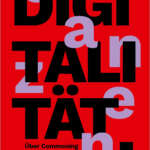
March 31st, 2023, 7 PM, Zentrum für Netzkunst Berlin: Book Launch with Shintaro Miyazaki (CDL/ HU Berlin) and Ela Kagel (SUPERMARKT/ Platform Cooperativism Consortium), Digitalität tanzen! Über Commoning und Computing (transcript, 2022)
Book launch with Shintaro Miyazaki: “Digitalität tanzen!” (transcript, 2022) at /rosa Berlin, in collaboration with Zentrum für Netzkunst Berlin, Response by Ela Kagel (SUPERMARKT/ Platform Cooperativism Consortium)
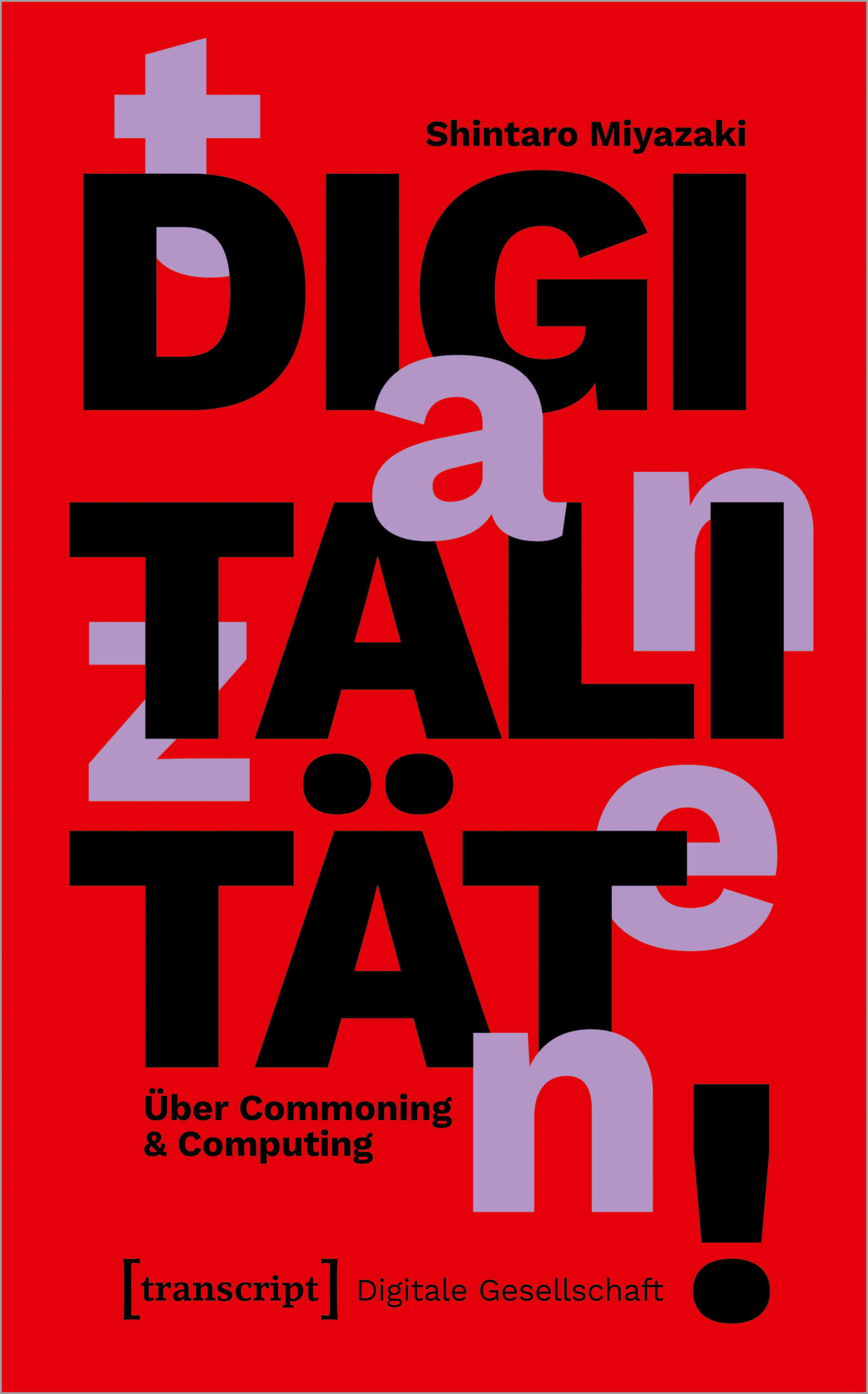
Zentrum für Netzkunst, Rosa-Luxemburg-Str. 35, Projektraum /rosa, Berlin, from 7 PM
Über Commoning & Computing
Digitale Technologien sind eine Zumutung! Um dies zu ändern, sollten wir uns nicht von ihnen abwenden, sondern uns eingehender mit ihrer transformatorischen Macht befassen. Shintaro Miyazaki ruft dazu auf, die alternativen Rhythmen des kooperativen, solidarischen Zusammenlebens (Commoning) operabel zu machen und die Digitalität so zum Tanzen zu bringen. Er macht ein Leben vorstellbar, in dem Profit und Eigentum keine Rolle mehr spielen, sondern das nachhaltige Zusammenspiel der Bedürfnisse unserer lebendigen Ökosysteme mit jenen aller Menschen oberste Priorität hat. Hier trifft Kapitalismuskritik auf eine kritische, marxistisch-informierte Medientheorie der algorithmischen Modellierung anderer Zukünfte.
Shintaro Miyazaki (Professor für digitale Medien und Computation sowie Institutional Host des Critical Data Lab, Humboldt-Universität zu Berlin) im Gespräch mit Ela Kagel (SUPERMARKT Berlin/ Platform Cooperativism Consortium) über sein neues Buch „Digitalität tanzen! Über Commoning & Computing.” (Transcript, 2022) Es moderieren Anna-Verena Nosthoff und Felix Maschewski (Ko-Direktor:innen des Critical Data Lab, Humboldt-Universität zu Berlin).
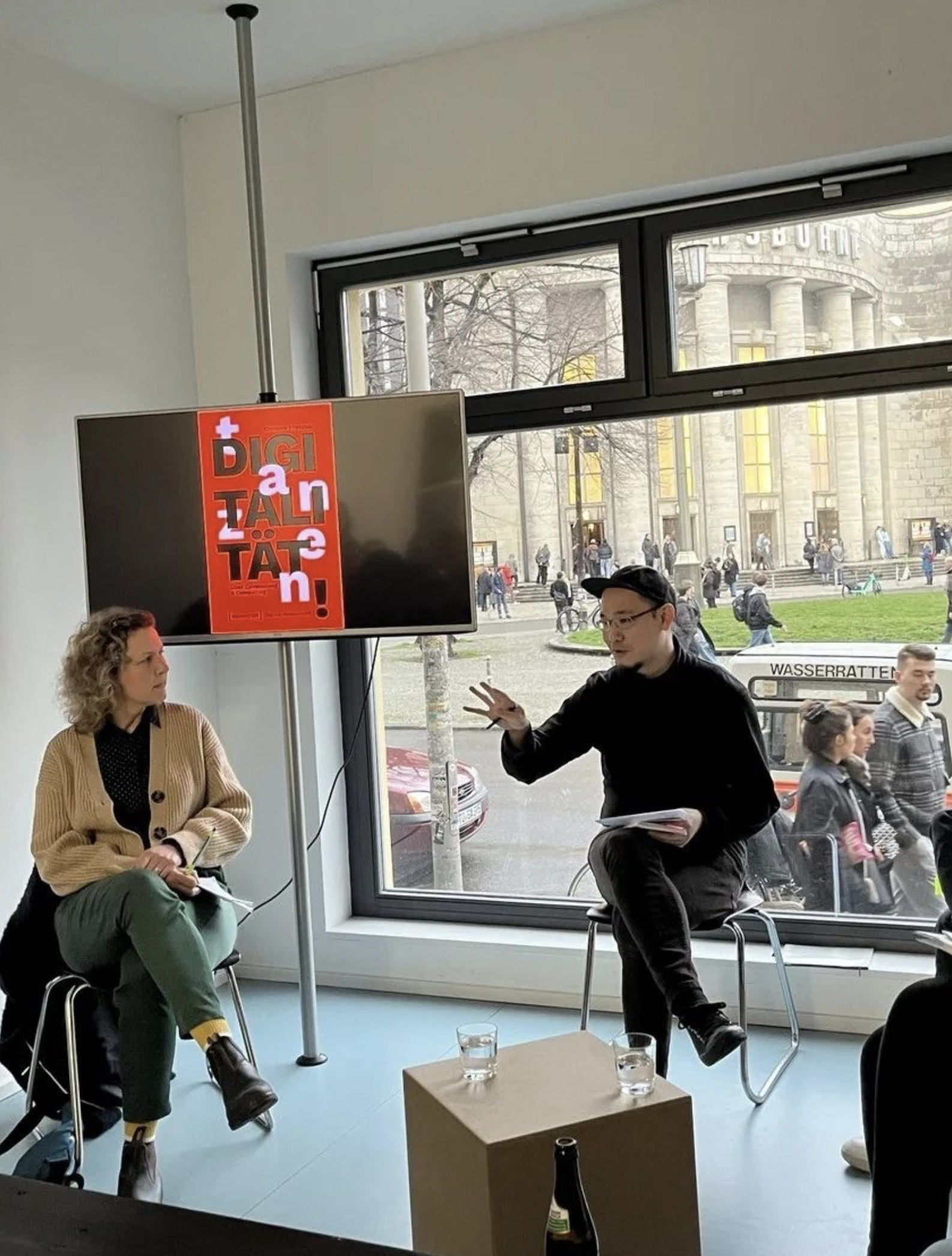
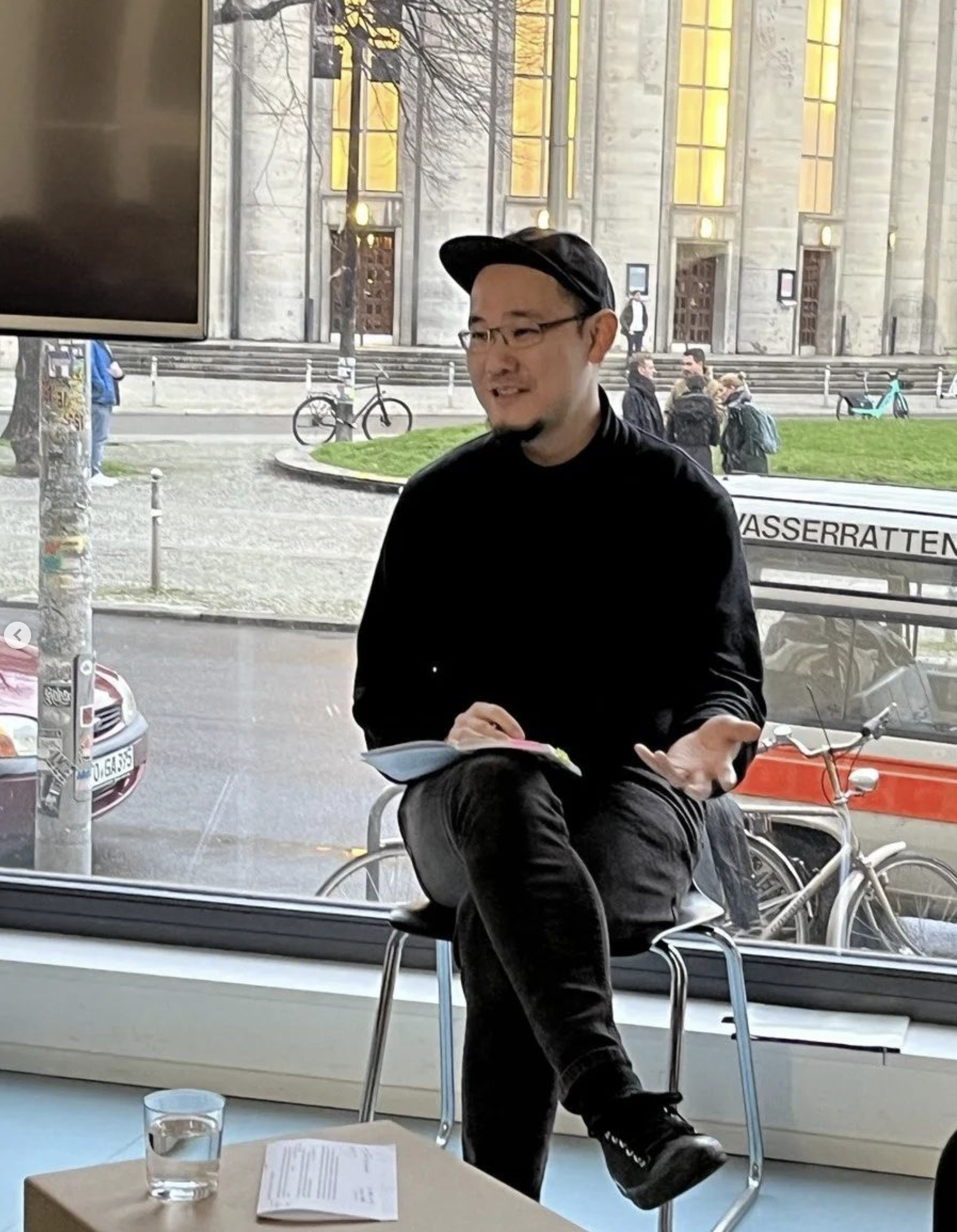
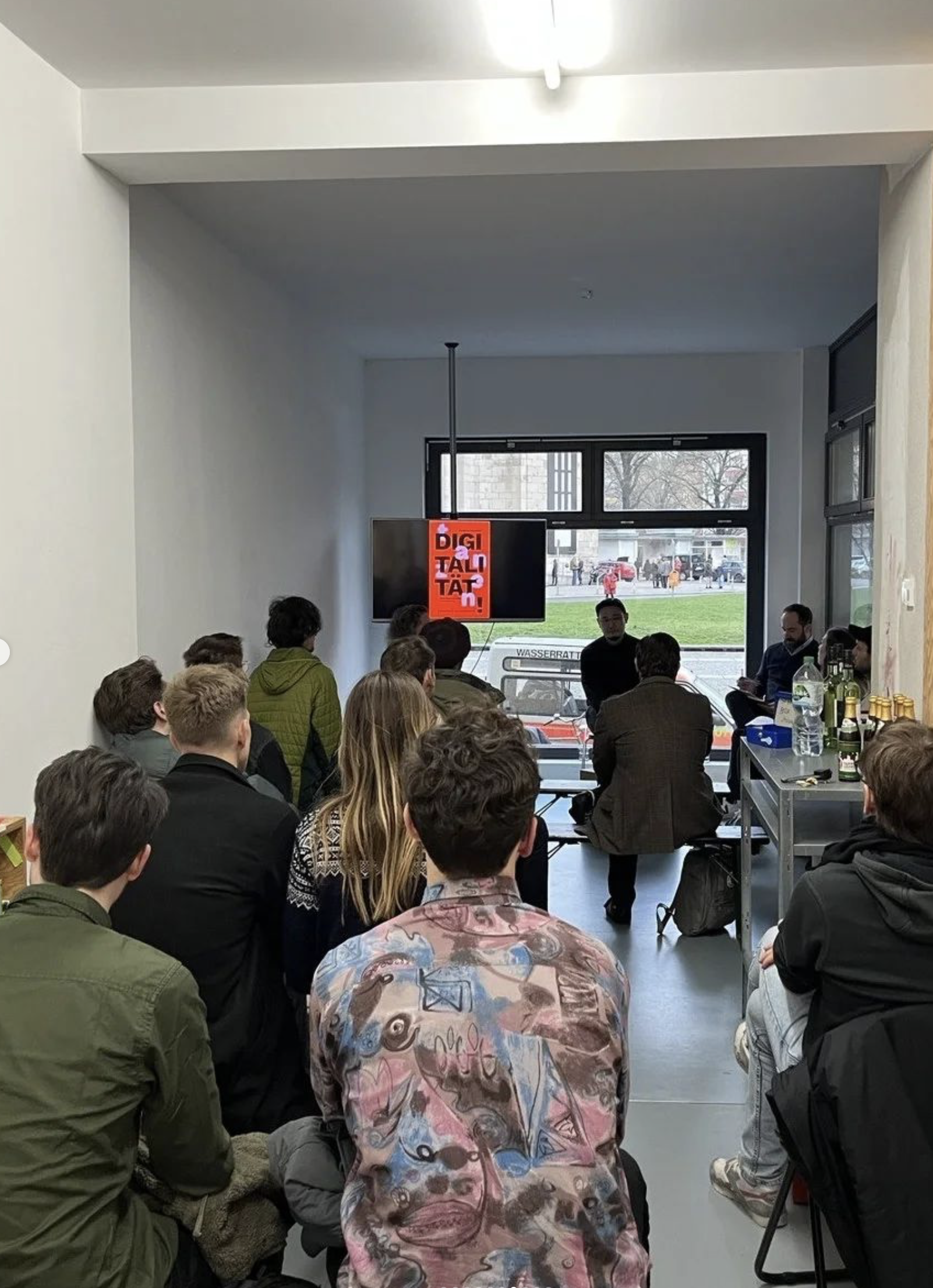
-
October 28th, 2022, 4 pm (CET): Politics and Culture of Digital Capitalism (PCDC) Reading Group: Robert Dorschel (Cambridge)
Speaker: Robert Dorschel (Cambridge): “The Social Codes of Tech Workers. On the Quest to be Middle-Class Wealthy and Morally Worthy”.
-
November 25th, 2022, 4 PM (CET): Politics and Culture of Digital Capitalism (PCDC) Reading Group: Julia Rone (Cambridge)
Speaker: Julia Rone (Cambridge): “Silicon Valley’s Brand of Green Capitalism”
-
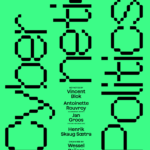
December 2nd, 2022, University of Vienna: Political Cybernetics Workshop Pt. I with Antoinette Rouvroy, Vincent Blok, Henrik Skaug Saetra
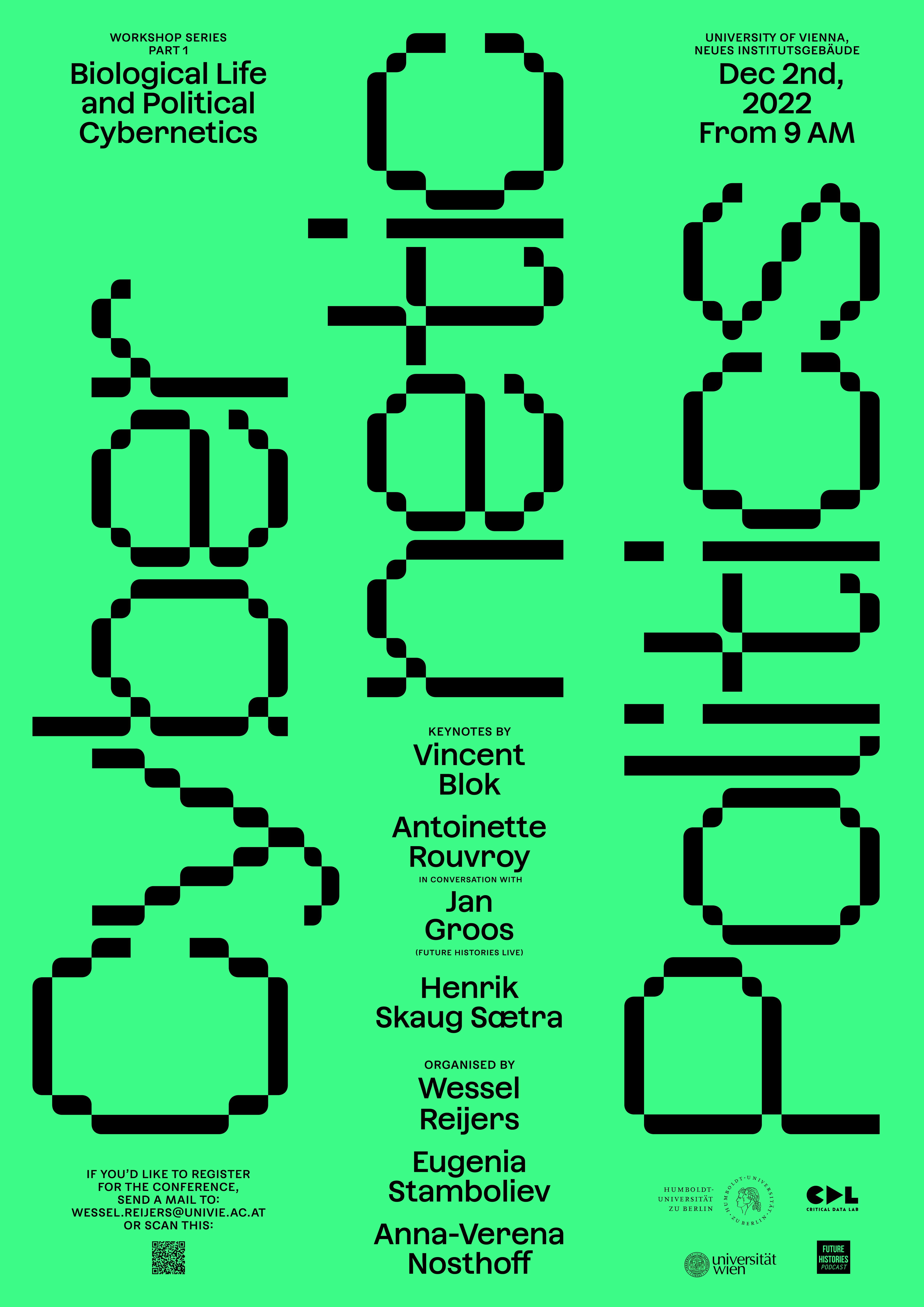
Organized by Wessel Reijers, Eugenia Stamboliev and Anna-Verena Nosthoff
University of Vienna, Neues Institutsgebäude
Keynote Speakers: Antoinette Rouvroy (in Conversation with Jan Groos (Future Histories Live Podcast), Vincent Blok, Henrik Skaug Saetra
Presentations: Eugene Favier-Baron, Simon Woillet, Jan Groos, Paulan Korenhof Full program: https://philtech.univie.ac.at/political-cybernetics-workshop/ -
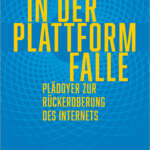
December 8th, 2022, 8 PM, Zentrum für Netzkunst Berlin: Book Launch with Geert Lovink, In der Plattformfalle
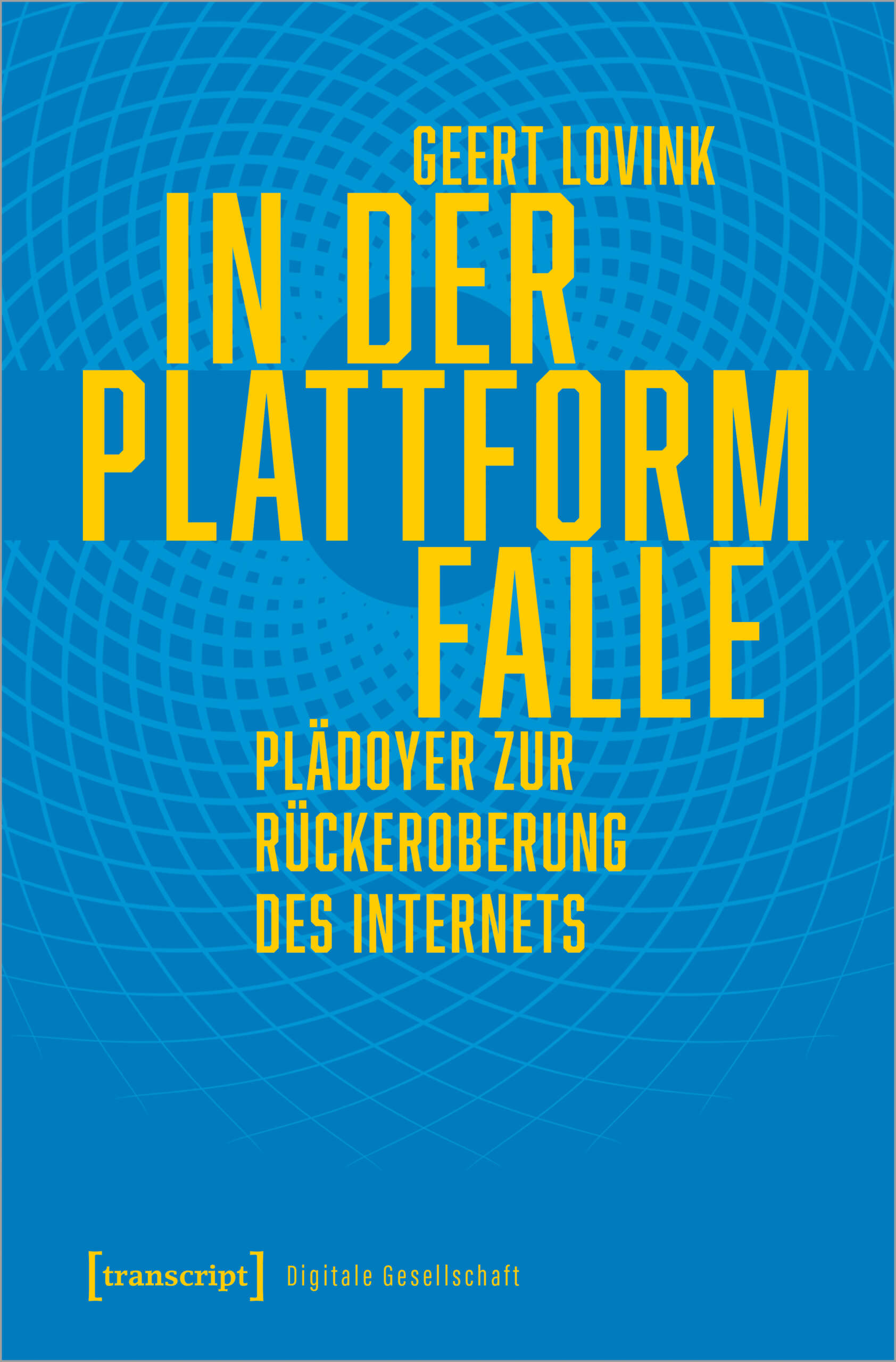
Book Launch & Discussion with Geert Lovink: “Stuck on the Platform”
Geert Lovink in Conversation with Felix Maschewski and Anna-Verena Nosthoff
Zentrum für Netzkunst, Rosa-Luxemburg-Str. 35, Projektraum /rosa, Berlin, December 8th, 2022 (in German)Wir sitzen alle in der Plattformfalle! Zoom-Müdigkeit, Cancel Culture, Kryptokunst und psychische Regression bilden die zentralen Elemente einer allgemeinen Theorie der Plattformkultur. Geert Lovink zeigt auf, wie wir in dieser Kultur das Internet zu unseren Bedingungen zurückgewinnen können. Er zeichnet eine rückfallbeständige Geschichte vom Aufstieg von Plattformalternativen nach, die auf einem tiefen Verständnis des digitalen Abstiegs beruht.
Geert Lovink (Professor für Kunst und Netzkultur (Universität Amsterdam) und Gründungsdirektor des Institute of Network Cultures) im Gespräch mit Anna-Verena Nosthoff und Felix Maschewski (Ko-Direktor:innen des Critical Data Lab, Humboldt-Universität Berlin) über sein neues Buch “In der Plattformfalle. Plädoyer zur Rückeroberung des Internets“.
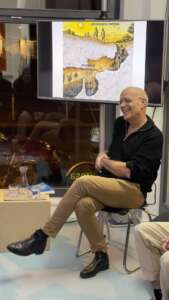
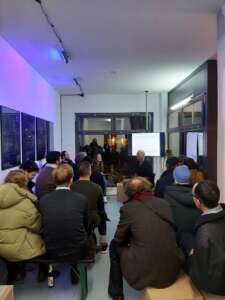
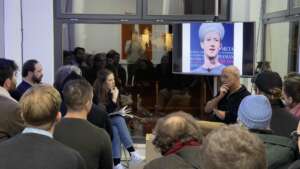
-
January 13th, 2023, 4 PM (CET): Politics and Culture of Digital Capitalism (PCDC) Reading Group : Franziska Cooiman (Berlin Social Science Center)
Speaker: Franziska Cooiman (Berlin Social Science Center): “Imprinting the economy: the structural power of venture capital”
-
January 27th, 2023, 4 PM (CET): Politics and Culture of Digital Capitalism (PCDC) Reading Group: Christine Trampusch (University of Cologne)
Speaker: Christine Trampusch (University of Cologne): “Heterogenous business preferences in digital capitalism: Why business is divided when it comes to regulating data sharing”
-
February 24th, 2023, 4 PM (CET): Politics and Culture of Digital Capitalism (PCDC) Reading Group: Christina Hecht (Berlin Institute of Technology)
Speaker: Christina Hecht (Berlin Institute of Technology): “A Field-Theoretical Perspective on Platform Regulation”
-
March 24th, 2023, 4 PM (CET): Politics and Culture of Digital Capitalism (PCDC) Reading Group: Philipp Riederle (University of Oxford)
Speaker: Philipp Riederle (University of Oxford): “Interoperable Digital Platforms — a Remedy for Monopolists’ Power?”
-
May 26th, 2023, 4 PM (CET): Politics and Culture of Digital Capitalism (PCDC) Reading Group: Paola Lopez (University of Vienna & Critical Data Lab)
Speaker: Paola Lopez (University of Vienna & Critical Data Lab): “Power and resistance in the Twitter bias discourse. A case study on Twitter’s saliency-based image cropping algorithm”
-
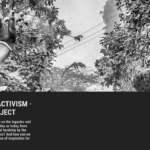
2022 – AFTER EXTRACTIVISM (by our partner Berliner Gazette)
After an inspiring local event in Berlin at the Haus der Demokratie und Menschenrechte , our cooperation Partner Berliner Gazette has launched the “After Extractivism” conference as an “asynchronous online event” and expansive resource site with video talks, projects, texts, and audios tackling the Ecological-Economic Complex, Green Capitalism, and Transition Justice.
Media theoretician and Critical Data Lab affiliate Özgün Eylül İşcen argues in her contribution to the Berliner Gazette’s video talks series “After Extractivism” that after the Gulf boom propelled the growth both of the region and of oil-devouring economies in the West, new realms of capitalist expansion are being developed along the lines of green capitalism’s smartness mandate, ultimately reproducing the lasting systemic crisis of which Dubai is somewhat representative.
Özgün Eylül İşcen · Gulf Futurism #AfterExtractivism from Berliner Gazette on Vimeo.
On the “After Extractivism” website you will find more on issues related to CDLs research objectives in the text section (“Green Capitalism”) and in the Projects section (“Algorithmic Mindset” and “Climate and Tech Politics”).
-
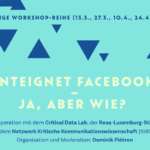
March 13th, 2023, 7PM (CET): Breaking Up Facebook, with Dominik Piétron (HU Berlin/ CDL), First session
 Der 4-teilige Workshopreihe „Digitale Vergesellschaftung“ analysiert aktuelle Entwicklungen der Digitalwirtschaft und entwickelt Strategien zur Förderung von dezentral-demokratischen Selbstverwaltungsstrukturen in der Plattformökonomie. Darüber hinaus soll diskutiert werden, welchen Beitrag vergesellschaftete Digitaltechnik für eine sozialökologische Wirtschaftssteuerung zur Bekämpfung der Klimakrise und gesellschaftlichen Notlagen leisten kann.
Die Workshops finden im März und April online jeweils montagsabends 19-20.30h statt. Geplante Termine: 13.3., 27.3., 10.4., 24.4.
Der 4-teilige Workshopreihe „Digitale Vergesellschaftung“ analysiert aktuelle Entwicklungen der Digitalwirtschaft und entwickelt Strategien zur Förderung von dezentral-demokratischen Selbstverwaltungsstrukturen in der Plattformökonomie. Darüber hinaus soll diskutiert werden, welchen Beitrag vergesellschaftete Digitaltechnik für eine sozialökologische Wirtschaftssteuerung zur Bekämpfung der Klimakrise und gesellschaftlichen Notlagen leisten kann.
Die Workshops finden im März und April online jeweils montagsabends 19-20.30h statt. Geplante Termine: 13.3., 27.3., 10.4., 24.4.
Maximale Teilnehmendenzahl: 20
-> Anmeldung bitte an pietron@posteo.de – bei Zusage erhaltet ihr den Zugangslink zum Online-Raum.
Die Veranstaltungsreihe wird moderiert und organisiert von Dominik Piétron in Kooperation mit der Rosa-Luxemburg-Stiftung, dem Critical Data Lab und Krikowi.Session 1: Ansätze im Status Quo
-
March 27th, 2023, 7PM (CET): Breaking Up Facebook, with Dominik Piétron (HU Berlin/ CDL), Second session
 Der 4-teilige Workshopreihe „Digitale Vergesellschaftung“ analysiert aktuelle Entwicklungen der Digitalwirtschaft und entwickelt Strategien zur Förderung von dezentral-demokratischen Selbstverwaltungsstrukturen in der Plattformökonomie. Darüber hinaus soll diskutiert werden, welchen Beitrag vergesellschaftete Digitaltechnik für eine sozialökologische Wirtschaftssteuerung zur Bekämpfung der Klimakrise und gesellschaftlichen Notlagen leisten kann.
Die Workshops finden im März und April online jeweils montagsabends 19-20.30h statt. Geplante Termine: 13.3., 27.3., 10.4., 24.4.
Der 4-teilige Workshopreihe „Digitale Vergesellschaftung“ analysiert aktuelle Entwicklungen der Digitalwirtschaft und entwickelt Strategien zur Förderung von dezentral-demokratischen Selbstverwaltungsstrukturen in der Plattformökonomie. Darüber hinaus soll diskutiert werden, welchen Beitrag vergesellschaftete Digitaltechnik für eine sozialökologische Wirtschaftssteuerung zur Bekämpfung der Klimakrise und gesellschaftlichen Notlagen leisten kann.
Die Workshops finden im März und April online jeweils montagsabends 19-20.30h statt. Geplante Termine: 13.3., 27.3., 10.4., 24.4.
Maximale Teilnehmendenzahl: 20
-> Anmeldung bitte an pietron@posteo.de – bei Zusage erhaltet ihr den Zugangslink zum Online-Raum.
Die Veranstaltungsreihe wird moderiert und organisiert von Dominik Piétron in Kooperation mit der Rosa-Luxemburg-Stiftung, dem Critical Data Lab und Krikowi.Second Session: Visionen der Plattform-Vergesellschaftung
-

April 10th, 2023, 7PM (CET): Breaking Up Facebook, with Dominik Piétron (HU Berlin/ CDL), Third session
Der 4-teilige Workshopreihe „Digitale Vergesellschaftung“ analysiert aktuelle Entwicklungen der Digitalwirtschaft und entwickelt Strategien zur Förderung von dezentral-demokratischen Selbstverwaltungsstrukturen in der Plattformökonomie. Darüber hinaus soll diskutiert werden, welchen Beitrag vergesellschaftete Digitaltechnik für eine sozialökologische Wirtschaftssteuerung zur Bekämpfung der Klimakrise und gesellschaftlichen Notlagen leisten kann. Die Workshops finden im März und April online jeweils montagsabends 19-20.30h statt. Geplante Termine: 13.3., 27.3., 10.4., 24.4.
Maximale Teilnehmendenzahl: 20
-> Anmeldung bitte an pietron@posteo.de – bei Zusage erhaltet ihr den Zugangslink zum Online-Raum.
Die Veranstaltungsreihe wird moderiert und organisiert von Dominik Piétron in Kooperation mit der Rosa-Luxemburg-Stiftung, dem Critical Data Lab und Krikowi.Third Session: Transformationspfade und Strategien
-

April 24th, 2023, 7PM (CET): Breaking Up Facebook, with Dominik Piétron (HU Berlin/ CDL), Fourth session
Der 4-teilige Workshopreihe „Digitale Vergesellschaftung“ analysiert aktuelle Entwicklungen der Digitalwirtschaft und entwickelt Strategien zur Förderung von dezentral-demokratischen Selbstverwaltungsstrukturen in der Plattformökonomie. Darüber hinaus soll diskutiert werden, welchen Beitrag vergesellschaftete Digitaltechnik für eine sozialökologische Wirtschaftssteuerung zur Bekämpfung der Klimakrise und gesellschaftlichen Notlagen leisten kann. Die Workshops finden im März und April online jeweils montagsabends 19-20.30h statt. Geplante Termine: 13.3., 27.3., 10.4., 24.4.
Maximale Teilnehmendenzahl: 20
-> Anmeldung bitte an pietron@posteo.de – bei Zusage erhaltet ihr den Zugangslink zum Online-Raum.
Die Veranstaltungsreihe wird moderiert und organisiert von Dominik Piétron in Kooperation mit der Rosa-Luxemburg-Stiftung, dem Critical Data Lab und Krikowi.Fourth Session: Plattformen als Planungs-Tool der sozialökologischen Transformation
-

April 14th, 2023, from 10 AM, Workshop: “Technocracy” with Sascha Dickel (Professor for Media Sociology, Mainz University) at Weizenbaum Institute, organised by Ann-Kathrin Koster (CDL/ Weizenbaum) and Anna Katzy-Reinshagen (Weizenbaum, Research Group “Technology, Power and Domination”)

Workshop: Technocracy (in German)
Das Thema des Workshops ist “Technokratie” –
stattfinden wird er am
Freitag, den 14. April 2023 von 10-16 Uhr
am Weizenbaum-Institut
(Raum A0_12 in der Hardenbergstr. 32)
Wenn über das Verhältnis von Technik und Demokratie gesprochen wird, fällt nicht selten der Hinweis auf eine Herrschaft qua Technik – denken wir an prägende Begriffe wie “Algocracy” oder das Sprechen über einen “Algorithmic Leviathan”. Digitaltechnik, im Kontext bezeichnet dies zumeist algorithmische Verfahren und Künstliche Intelligenz, wird zugeschrieben, das Machtgefüge zwischen Politik, Gesellschaft und Technik neu zu konfigurieren – und zwar zu Lasten demokratischer Organisationsweise. Diese besondere Zeitdiagnose hat jedoch eine ideengeschichtliche Tradition. Bereits in den 1960er und 1970er formten sich grundlegende Debatten um den Begriff der “Technokratie” – im Mittelpunkt stand die Frage, wie demokratisches Regieren angesichts eines zunehmenden Fortschritts im technischen Bereich ausgestaltet werden soll. Während zunächst “Sachverständige” bzw. “Techniker” – also Eliten – aufgrund ihrer besonderen Expertise in den Fokus gerieten, wandte sich der Blick schnell auf die Technik selbst. Dabei wurde eine sich zunehmend vom Menschen emanzipierende Technik zum Dreh- und Angelpunkt neuer Vorstellungen politischen Regierens. Vor diesem Hintergrund lassen sich ideengeschichtlich Verbindungen der gegenwärtigen Debatte um eine Herrschaft von Algorithmen und früheren Debatten um die Macht der Technik ziehen – und diesen wollen wir im Workshop genauer nachgehen.Wir freuen uns besonders, dass wir mit Sascha Dickel einen Experten gewinnen konnten, der uns mit ausgewiesener Fachkenntnis zur Seite steht.
Wer teilnehmen möchte, lässt uns bitte eine kurze Rückmeldung – im Idealfall bis zum 31.3.2023 – zukommen: ann-kathrin.koster@wzb.eu. -
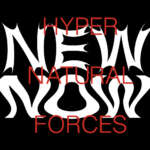
June 2nd, 2023: CRITICAL DATA LAB x NEW NOW FESTIVAL: Hypernatural Forces/ Extinction Internet
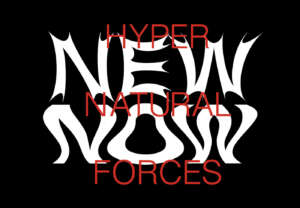
In June 2023 (June 2nd, 2023) we’ll collaborate with NEW NOW festival. Involved CDL members: Geert Lovink, Rafael Dernbach (curator), Felix Maschewski, Anna-Verena Nosthoff. Curated by Jasmin Grimm & Rafael Dernbach (CDL).
June 2nd, from 6PM, Zeche Zollverein, Essen
EXTINCTION INTERNET
“Extinction Internet” is not merely an end-of-the-world phantasy of digital technology that one day will be wiped out by an electromagnetic pulse or the cutting of cables. Rather, “Extinction Internet” marks the end of an era of possibilities and speculations, when adaptation is no longer an option. During the internet’s Lost Decade, we’ve been rearranging the deck chairs on the Titanic under the inspirational guidance of the consultancy class. What’s to be done to uphold the inevitable? We need tools that decolonize, redistribute value, conspire and organize. Join the platform exodus. It’s time for a strike on optimization. There is beauty in the breakdown.
The event will be live-streamed (en/ ger), more info here.
The festival is now online and can be watched here.
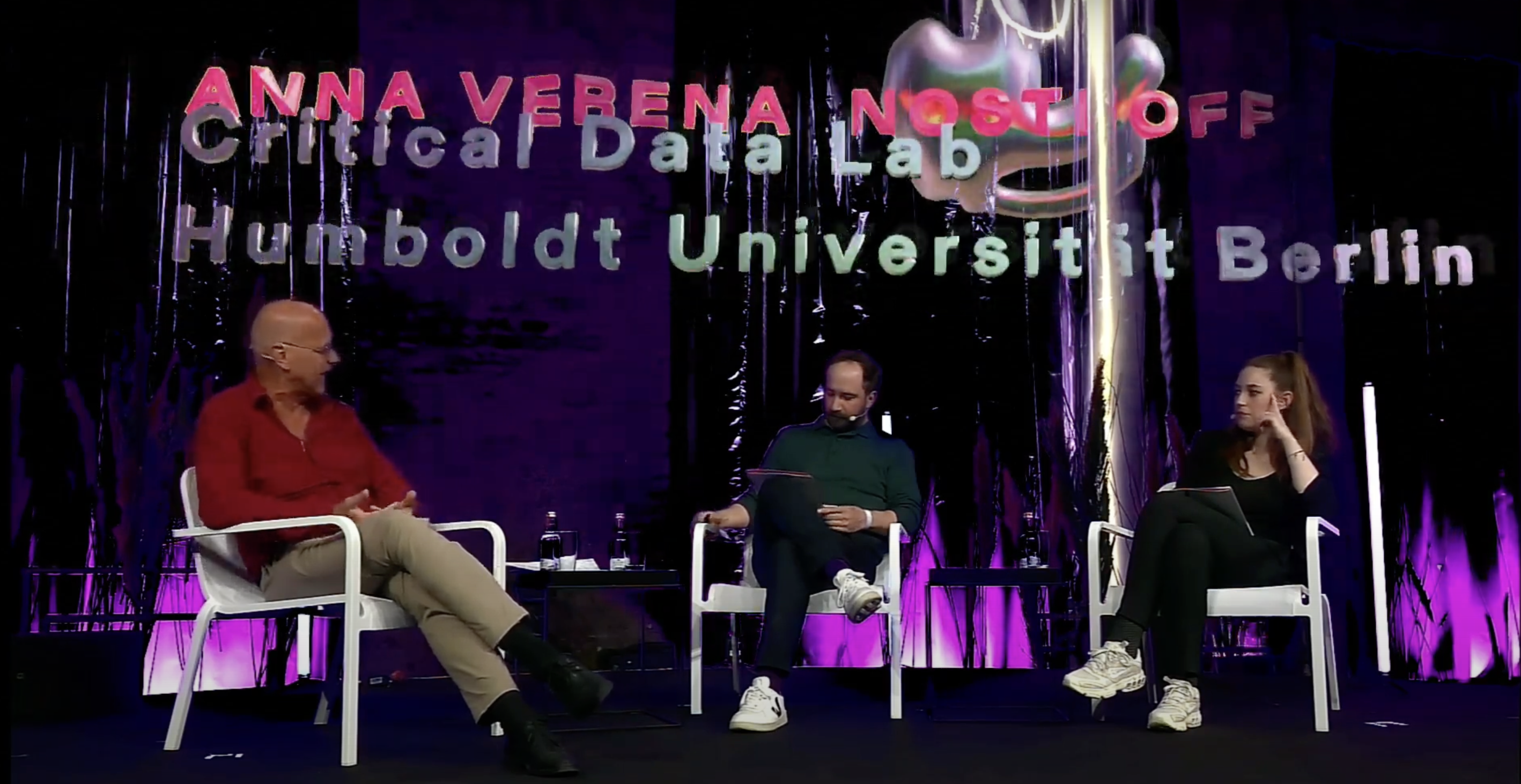
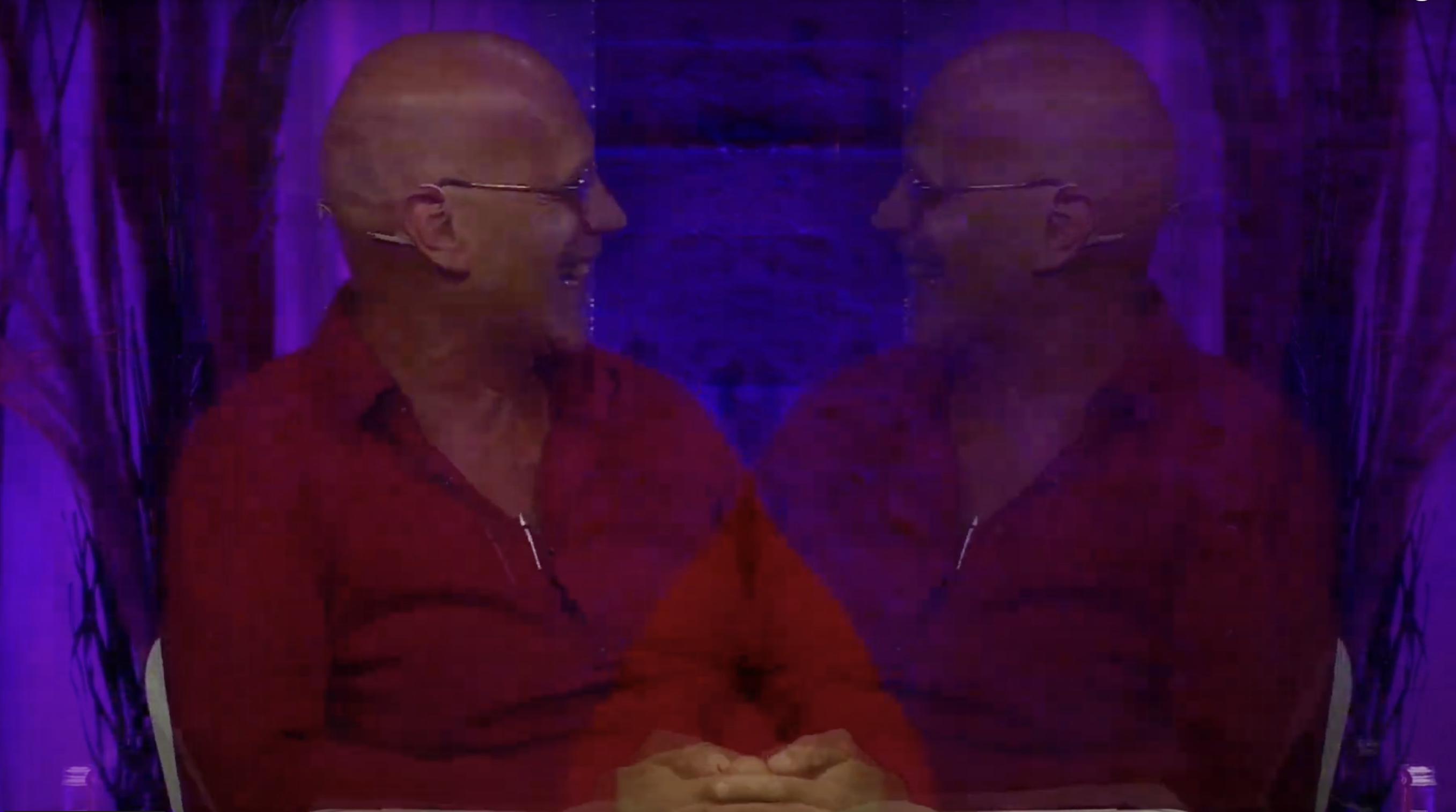
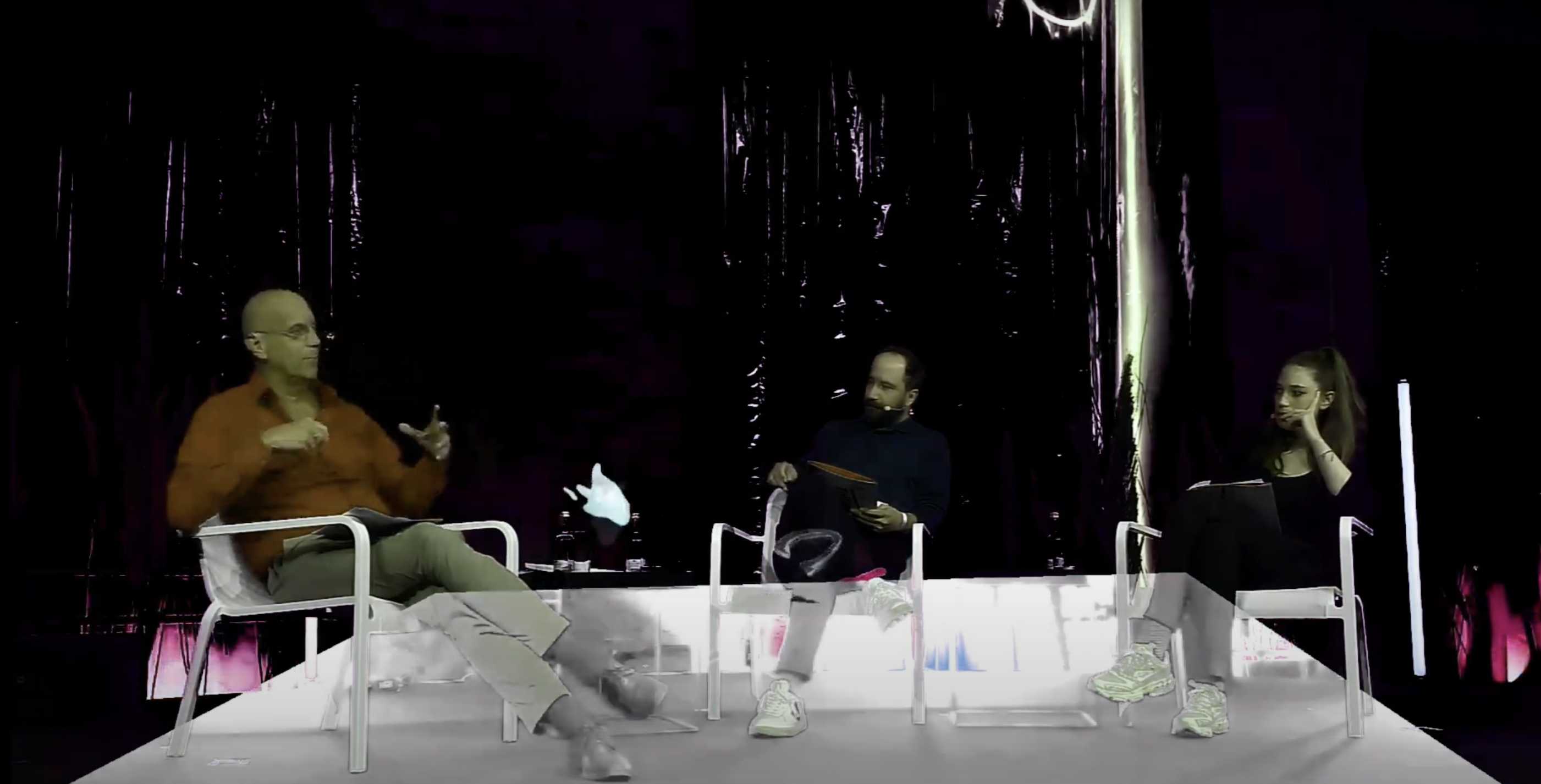
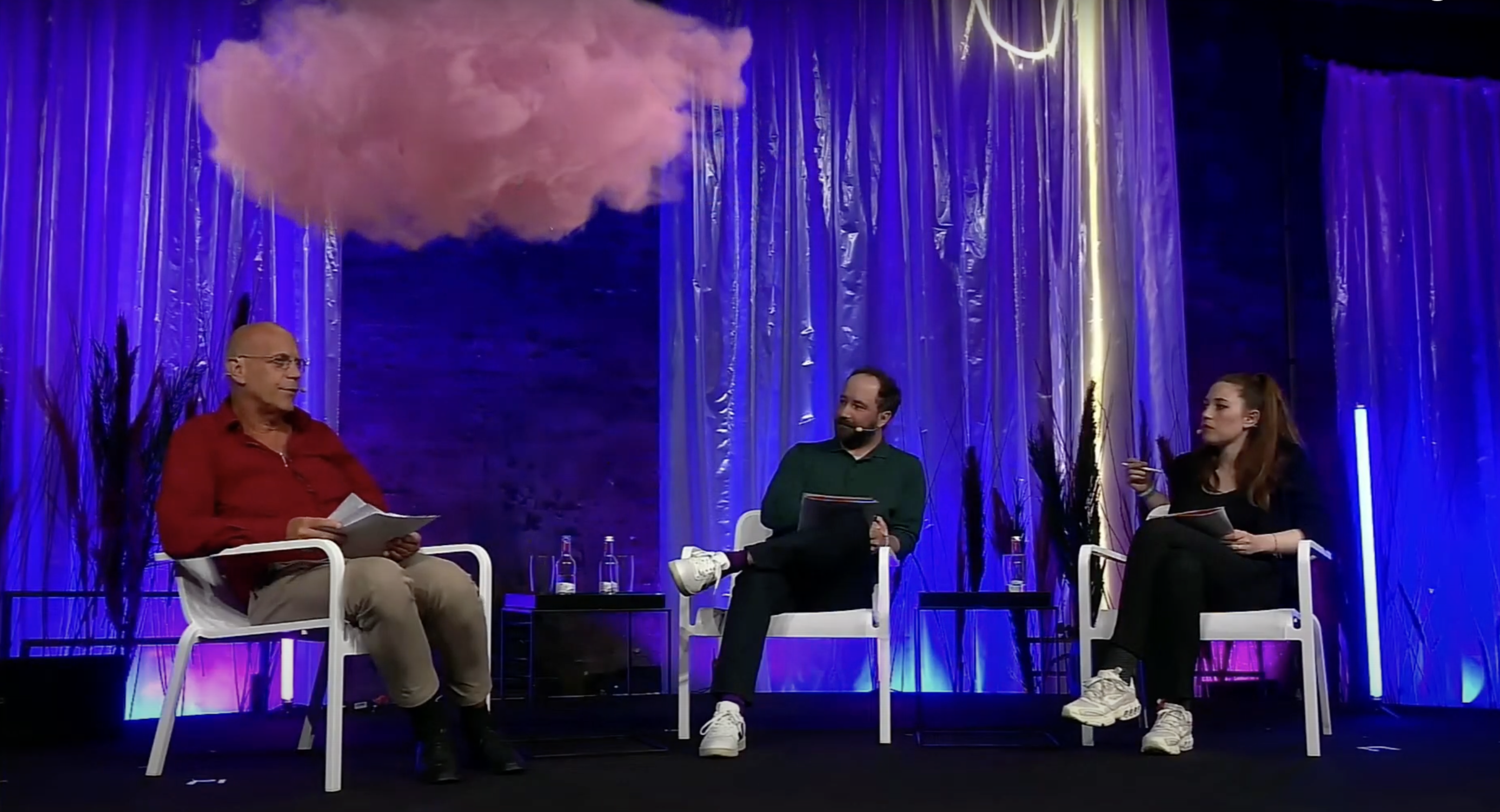
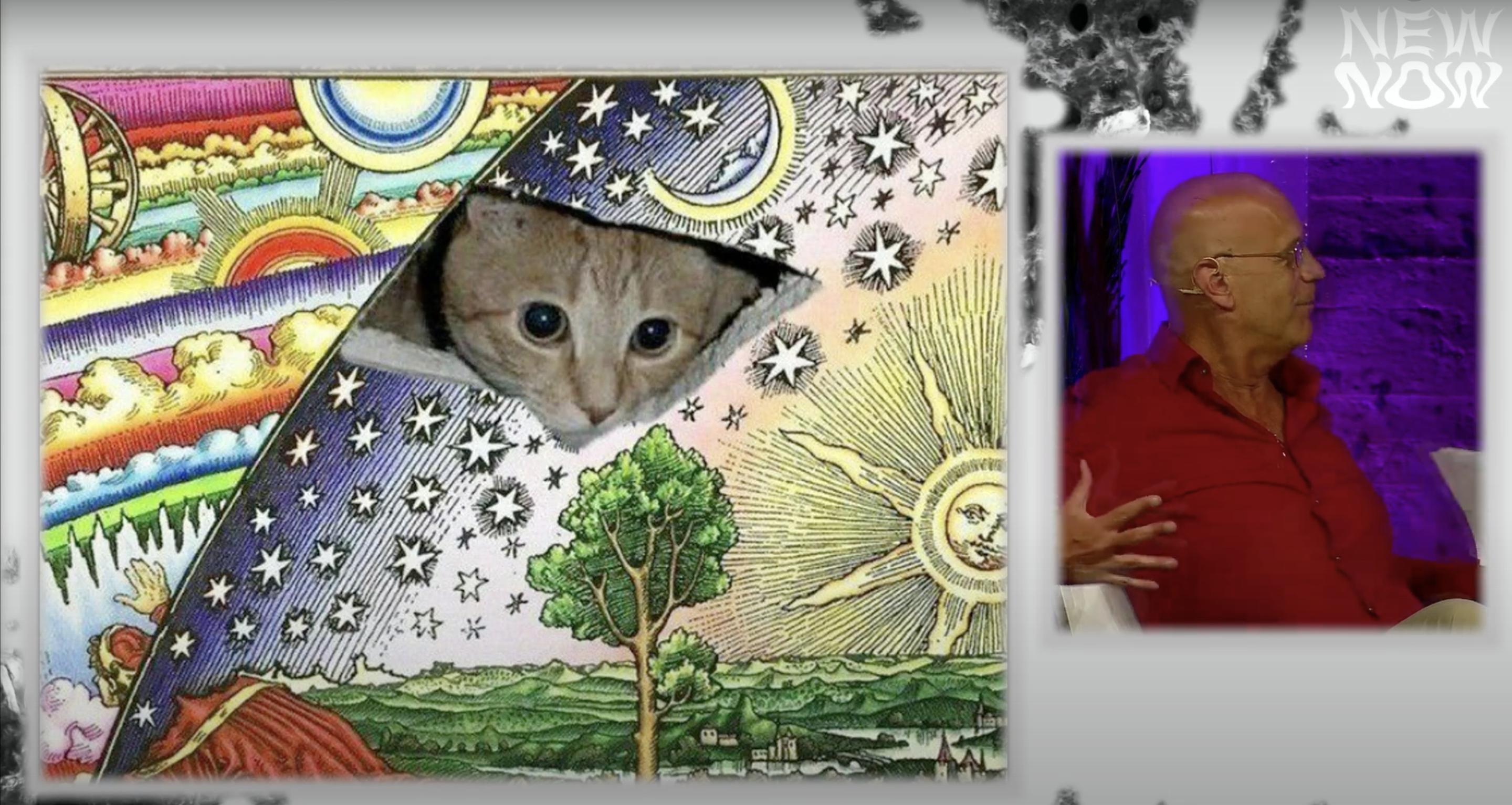
-
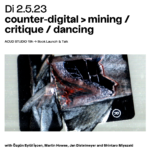
May 2nd, 2023, 7PM: counter-digital > mining / critique / dancing (ACUD MACHT NEU): with Özgün Eylül İşcen, Martin Howse, Jan Distelmeyer and Shintaro Miyazaki
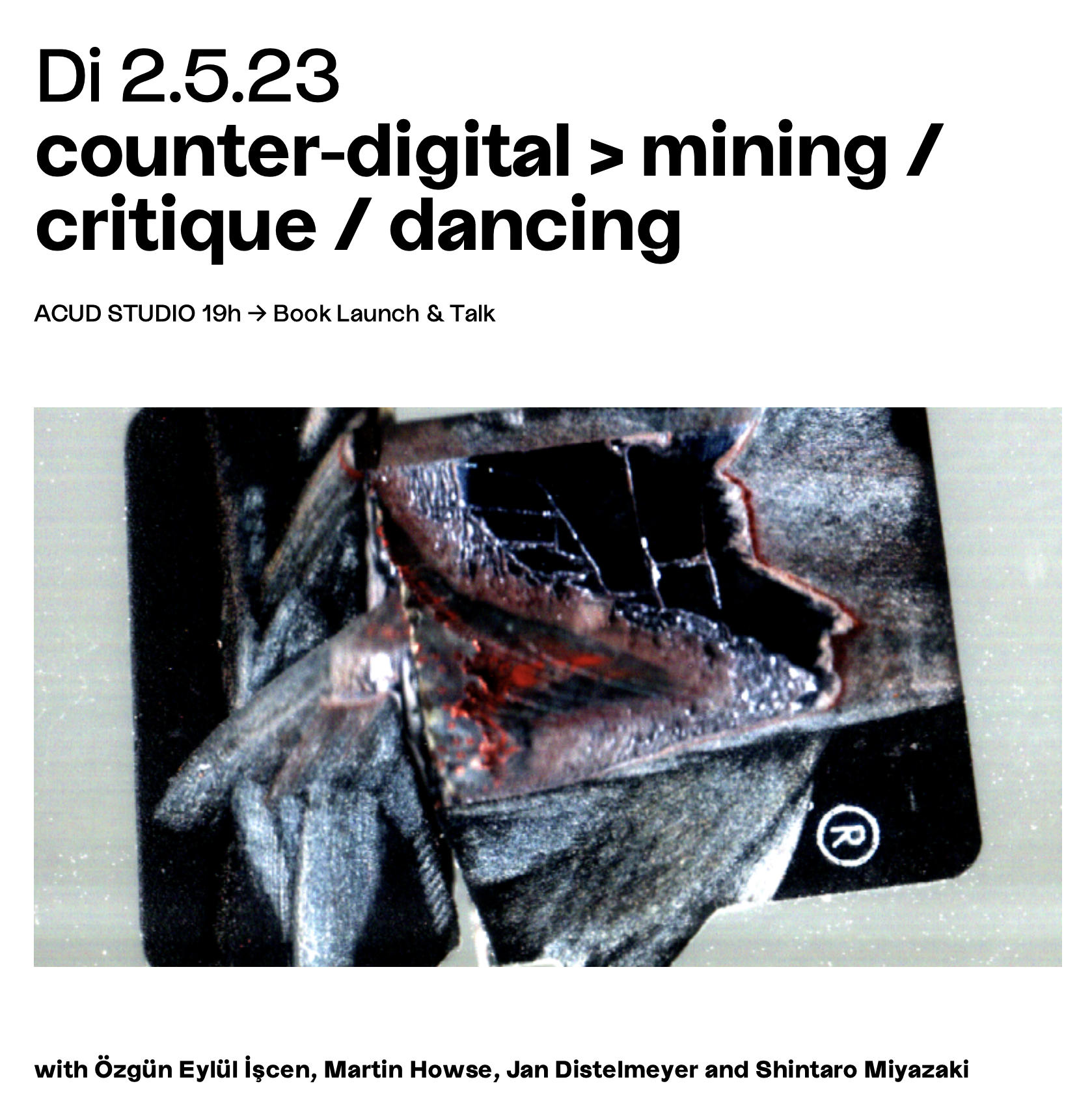
We come together and celebrate FOUR recent releases/launches of 1) COUNTER-N, 2) Becoming Geological, 3) Critique of Digitality and 4) Counter-Dancing Digitality. These projects are linked to each other via several subthreads and personal networks, sharing common veins, interfaces and steps. During the rather informal talk and presentations of the different projects we will address and discuss topics such as the necessity to practice different futures, reconnect to earthy matters and consider interfacing, modelling and dancing.
About the projects:
1) COUNTER-N
Curated/ Edited by Özgün Eylül İşcen and Shintaro Miyazaki
Web-based publishing with open access PDFsCOUNTER-N is a web-based publishing, exchange, and research collection on alternative modes of computing and futuring. To counter means to go or engage against, while to encounter means to meet or come across. As a noun, counter means a table, where accounts are made or persons meet, thus an object, which is in opposition. A counter is also a device that counts. It operates as a prefix to something to oppose or to react to. Counter-N, where N is meant as an open variable to occupy, thus Counter-N unfolds a vast possibility space of practices, concepts, institutions, and more, which are not merely encountered and opposed, but reimagined and reformulated, so that alternatives are proposed.
Özgün Eylül İşcen is a postdoc fellow at the ICI Berlin Institute for Cultural Inquiry. She received her PhD in Computational Media, Arts and Cultures from Duke University in 2020. Her dissertation examines counter-visual artistic practices that intervene in the material conditions and ethico-legal systems underlying the extractive operations of computational media in the context of the Middle East.
2) Becoming Geological
Edited by Martin Howse with contributions by Agnieszka Anna Wołodźko, Ines Tomašek, Aaron Parkhurst, Michael Marder, Elaine Tam, Arthur Gouillart, Thomas Moynihan, Patricia MacCormack, Rosemary Lee, Anaïs Tondeur, Marine Legrand, Sissel Marie Tonn, Rosa Whiteley, Alfonso Borragán and Cecilia Jonsson. Published with v2, Lab for the Unstable MediaThis divinatory guide has its roots and veins in the lustrous earths and waters of the Tiny Mining community, a mineral exploration collective committed to the open source exploitation of the interior of the human body for rare earth resources. Becoming Geological functions as a manual for a new relation of the human with the earth and with the cosmos, invoking becoming metal, becoming earth and becoming cosmic as potential and multiple ways of being and as active philosophies of the earth; a guide for how to live and die within new planetary and cosmic techno-cycles.
Martin Howse is occupied with an investigation of the links between the earth, software and the human psyche through the construction of experimental situations (performance, laboratories, walks, and workshops), material art works and texts. He is equally the creator of the ERD ouroboric synthesizer series and founder of the Tiny Mining community.
3) Critique of Digitality
Author: Jan Distelmeyer. Published with Palgrave MacmillanDealing with digitality is an urgent challenge of the present. The increasing importance and spread of computer technology not only challenges societies and individuals – this also puts pressure on the concept of digitality, which tries to grasp the totality and peculiarity of the conditions and consequences of electronic digital computing. However, precisely because digitality is commonplace, so should be its critique, its analysis and assessment. This book introduces current debates and develops its own approach to the critique of digitality, starting from diverse forms of interfacing.
Jan Distelmeyer is Professor of History and Theory of Technical Media in the European Media Studies program of the Potsdam University of Applied Sciences and the University of Potsdam. He is founding member of the Working Group Interfaces of the German Society for Media Studies (GfM), of the Brandenburg Center for Media Studies – ZeM, and of the Research College SENSING: The Knowledge of Sensitive Media. www.distelmeyer.emw-potsdam.de
4) Counter-Dancing Digitality. On Commoning and Computing
Author: Shintaro Miyazaki. Published with meson pressDigitality is imposed upon us! To change this, we should not turn away from it, but look carefully into its transformative power and make operable alternatives such as counter-algorhythms and solidarity-oriented commoning. The aim is a world where profit and property no longer exist, but instead where a cooperative dance – between all the needs posed by our ecosystems, and all the needs of people – becomes practicable. This book is a critical media theory of future-building, modulated by a focus on the potentials of counter-dancing as providing ways to unfold fugitive practices.
Shintaro Miyazaki is a (junior)-professor in “Digital Media and Computation” (with tenure track) at the Faculty of Humanities and Social Sciences, Humboldt-Universität zu Berlin. He studied media studies, philosophy, and musicology in Basel, and Berlin, where he received a PhD in media studies in 2012. He is hosting amonst different things also the Critical Data Lab.
The book launch is supported by Humboldt-Universität zu Berlin.
From 7PM, ACUD STUDIO → Book Launch & Talk
-

July 6th, 2023: Mosse Lecture 2023, Across the Universe: MARS, MUSK UND METAVERSE. DER PLATTFORMKAPITALISMUS UND DAS ALL (Anna-Verena Nosthoff & Felix Maschewski, with Joseph Vogl)
Anna-Verena Nosthoff und Felix Maschewski
»Mars, Musk und Metaverse. Der Plattformkapitalismus und das All«
mit Joseph Vogl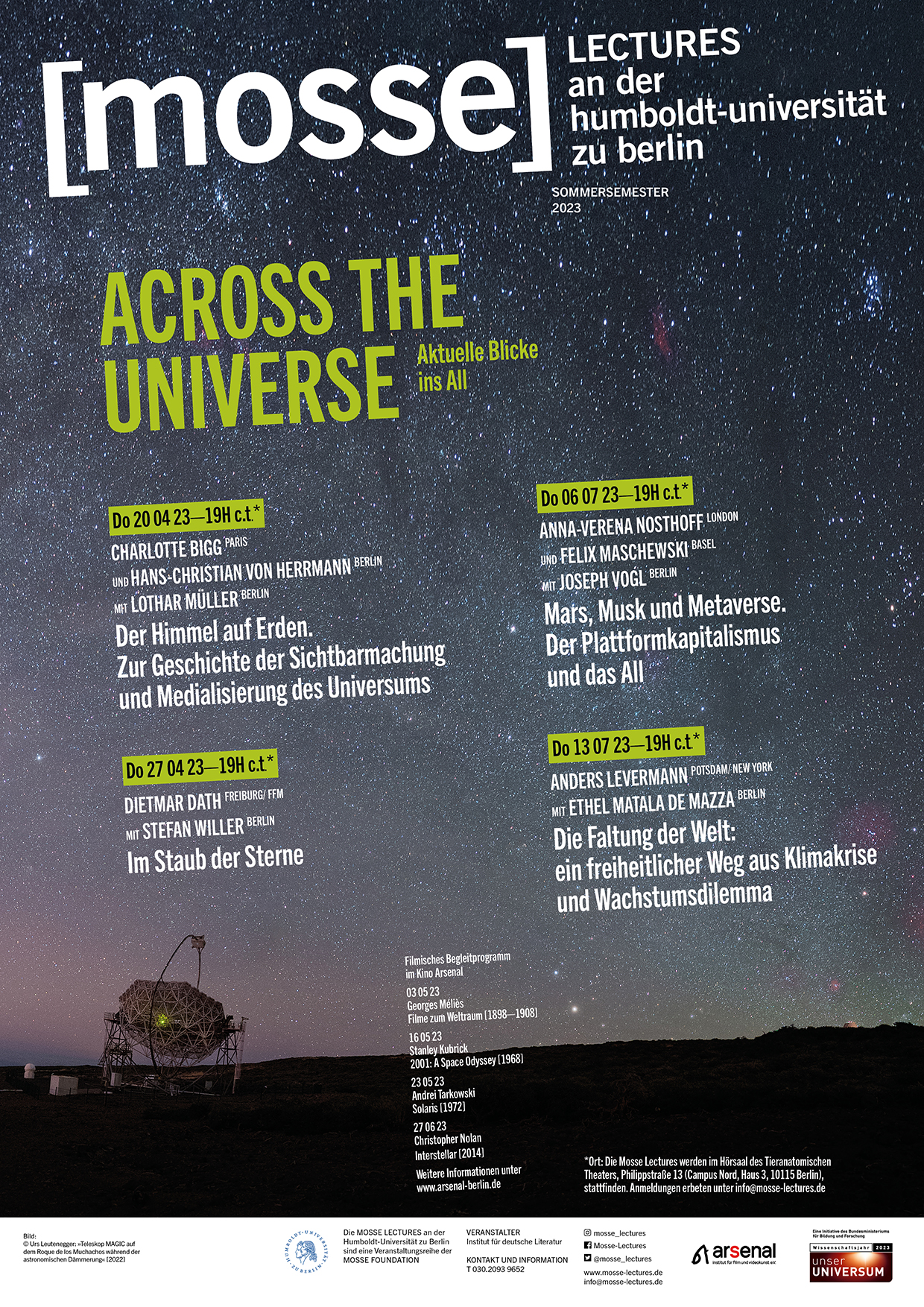
Donnerstag, den 6. Juli 2023 | 19.15 Uhr | Hörsaal des Tieranatomischen Theaters, Philippstraße 13 (Campus Nord, Haus 3) 10115 Berlin. More info here.
-
June 9th, 2023, 4 PM (CET): Politics and Culture of Digital Capitalism (PCDC) Reading Group : Elise Antoine (King’s College London)
Sitting in or speaking out? The effect of policy complexity and organisations’ resources on privacy advocacy
Presenter: Elise Antoine (King’s College London)
-

June 20th, 2023, 6PM: Data and the Paradox of Plenty: A Decolonial Critique of Data as a Non-Rival Resource, A Talk by Ulises A. Mejias (State University of New York), Weizenbaum Institute
Prof. Dr. Ulises A. Mejias: “Data and the Paradox of Plenty: A Decolonial Critique of Data as a Non-Rival Resource”
June 20th, 18:00, Weizenbaum Institute
The talk is organized as part of the research network “Digital Societies in Latin America”. After the talk, you are welcome to join us for an informal gathering over drinks and snacks. Registrations at techdo@wzb.eu.
“Data and the Paradox of Plenty: A Decolonial Critique of Data as a Non-Rival Resource”
Not too long ago, we were told that the internet created a non-rival data commons based on a post-capitalist sharing economy. Today, as we witness the levels of data extraction required to train predictive machine learning models, we must acknowledge that the romanticized notion of data as a non-rival resource has turned out to be an unsustainable illusion. This illusion must be understood in a historical context, which the theory of data colonialism can help us do. Using this framework, we can see that the true ‘tragedy of the commons’ is that the sharing economy has become the gig economy, and that non-rival data has become training data for corporate AI products that undermine our welfare. In short, when it comes to data, we are facing a new ‘resource curse’, a residual paradox from colonial times, where the wealthiest in resources become the poorest in economic opportunity. Addressing these challenges will require a creative application of decolonial thinking.
Prof. Dr. Ulises A. Mejias, is a Professor of Communication Studies the State University of New York at Oswego. His most recent book (co-authored with Nick Couldry) is “The Costs of Connection: How Data is Colonizing Human Life and Appropriating it for Capitalism.” He is also a co-founder of Tierra Común (tierracomun.net), and has been named a Fulbright Specialist from 2021 to 2025.
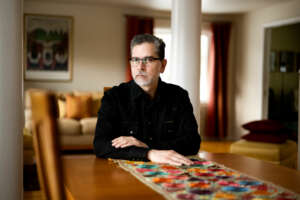
On-location portraits of author and professor, Ulises Mejias, originally shot for REPUBLIK Magazin by Amy Moore Photography.
-
AUTUMN 2023: Doing Digital Utopia: Publication Workshops (internal meetings)
In autumn, we will be working on a forthcoming publication in collaboration with Rat für digitale Ökologie, Better Place Lab and SUPERRR Lab (working title: Doing Digital Utopia).
-
tba.: Politics and Culture of Digital Capitalism (PCDC) Colloquium: Lena Ulbricht (Weizenbaum Institute / WZB)
-

November 24th, 2023, from 2PM (Humboldt University): Berliner Gazette x Critical Data Lab Workshop pt. I
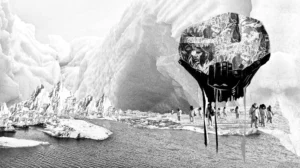
picture: (c) Berliner Gazette, Allied Grounds
In this workshop, members of the Critical Data Lab, Berliner Gazette, eeefff and Rat für digitale Ökologie come together to explore current projects in an open discussion format. The workshop will take place at Humboldt University, Institut für Medienwissenschaft, from 2PM. With Krystian Woznicki (Berliner Gazette), Magdalena Taube (Berliner Gazette/ CDL), Maxim Keller (RDÖ), Anni Verhoeven (RDÖ), Nicolay Spesivtsev (eeefff), Dzina Zhuk (eeefff), Shintaro Miyazaki (CDL), Felix Maschewski (CDL) and Anna-Verena Nosthoff (CDL). Projects to be discussed: The Snowden Files (BG), Doing Digital Utopia (CDL/ RDÖ), among others.
-
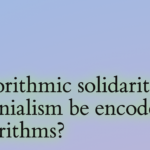
February 23rd 2024: EEEFFF: ALGORITHMIC SOLIDARITY// YANDEX LEAKS WORKSHOP WITH EEEFFF
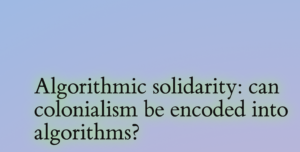
Workshop on the Yandex Leaks with EEEFFF and Berliner Gazette at Humboldt University Berlin
Algorithmic solidarity: can colonialism be encoded into algorithms?
When?
23rd of February (Friday)The space will be functioning from 14:00 to 20:00. You can come at any point. Please reserve at least 1,5 hours to go through the speculative public space environment of the leaked code. Please register to take part.
Where?
Humboldt-Universität zu Berlin
Georgenstraße 47, 0 floor, MedientheaterWhat?
The session will look into the recent leaked source code of biggest IT corporation which is very close to russian government. The source codes of the “Yandex” company were copied in July 2022 and published in the Internet on January 25, 2023. The size of the leakage is 44,71 gigabytes. An artistic duo eeefff proposes to read the code collectively, diving into:– encoded ownership on territories,
– exceptional cases,
– patterns of digital colonialism,
– how-to-spell constructedness,
– “pure web,”
– encoded violence,– fairy tales about oil,
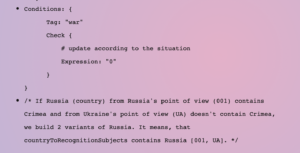
Conditions: {
Tag: “war”
Check {
# update according to the situation
Expression: “0”
}
}
/* If Russia (country) from Russia’s point of view (001) contains Crimea and from Ukraine’s point of view (UA) doesn’t contain Crimea, we build 2 variants of Russia. It means, that countryToRecognitionSubjects contains Russia [001, UA]. */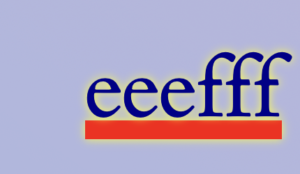
No necessary programming or any other skills are needed.
eeefff will guide the session, prepare a tool to search inside of the code, exercises for rehearsal and collective playing out of the programming code lines.
How to participate?
Please send an email to the school of algorithmic solidarity and we will send you info&instructions: algosolidarity@eeefff.orgWhat is ‘the school of Algorithmic Solidarity’?
‘The school of Algorithmic Solidarity’ focuses on the infrastructures of colonialism and the infrastructures of solidarity opposed to them. Specifically looking into infrastructural time, algorithmic abstractions and bodies. By form, it can be a collective experience / radical pedagogy practice / walk to the specific location / LARP protocol / digital togetherness / open-ended situation / affective temporary training zone.Who is behind the event?
eeefff (Minsk/Berlin) are artistic cooperation / made-up institution / cybernetic political brigade / poetic computations / hacking unit / queer time. It is neither one of these, nor all together. Active from 2013, eeefff make software-based projects, publications, networks, and platforms that critically explore digital labour, value extraction, and community formation. Methods include: public actions, online interventions, performative seminars, software and hardware hacking, framing environments and choreographing social situations. Co-organisers of several events, spaces and agencies, among them: Work Hard! Play Hard!, Flying cooperation, School of Algorithmic Solidarity. More info can be found here. -
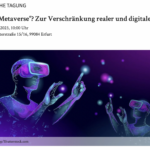
November 15th, 2023: Deutscher Ethikrat: Öffentliche Tagung (German Ethics Council, Public Conference) “Lost in ‘Metaverse’? Zur Verschränkung realer und digitaler Welten”
Am 15.11.2023, 10h – 18h, findet die öffentliche Tagung des Deutschen Ethikrats im Erfurter Kaisersaal statt. Vom Critical Data Lab sind Sara Morais dos Santos Bruss und Anna-Verena Nosthoff mit Vorträgen vertreten. Zum Programm: https://www.ethikrat.org/weitere-veranstaltungen/lost-in-metaverse/
-
May 8th, 2024, 6PM CET: Positive Luddism Reading Group (by Wessel Reijers & Alberto Romele)
Positive Luddism Reading Group with Jessica Lingel: Gentrification Online and Off (Interviewer: Alberto Romele)
-
June 5th, 2024, 6PM CET: Positive Luddism Reading Group (by Wessel Reijers & Alberto Romele)
Positive Luddism Reading Group with Theodora Sutton: Digital Re-Enchantment (Interviewer: Wessel Reijers)
-
July 3rd, 2024, 6PM CET: Positive Luddism Reading Group (by Wessel Reijers & Alberto Romele)
Positive Luddism Reading Group with Antonio Casilli: text to be announced (Interviewer: Alberto Romele)
-
September 4th, 2024, 6PM CET: Positive Luddism Reading Group (by Wessel Reijers & Alberto Romele)
Positive Luddism Reading Group with Dominique Routhier: text to be announced (Interviewer: Wessel Reijers)
-
October 2nd, 2024, 6PM CET: Positive Luddism Reading Group (by Wessel Reijers & Alberto Romele)
Positive Luddism Reading Group with Thomas de Keyser: text to be announced (Interviewer: Alberto Romele)
-
November 6th, 2024, 6PM CET: Positive Luddism Reading Group (by Wessel Reijers & Alberto Romele)
Positive Luddism Reading Group
-
December 4th, 2024, 6PM CET: Positive Luddism Reading Group (by Wessel Reijers & Alberto Romele)
Positive Luddism Reading Group with Anastasia Siapka
-
December 5th, 2024, 5-7 PM CET: HeiCADLectures – Musk, Bezos und die “Road to Space”
Musk, Bezos und die “Road to Space” – Digitaler Kapitalismus und (Post-)Solutionismus im katastrophischen Zeitalter (Lecture: Anna-Verena Nosthoff und Felix Maschewski)
HHU: Universität Düsseldorf, Hörsaal 2C, Geb. 22.01
-
December 6th, 2024: Unpacking Black Boxes? Technological Imaginaries from Outer Space to Artificial Intelligence. Workshop in collaboration with Heinrich Heine University Düsseldorf
Im Rahmen der zweitägigen interdisziplinären Veranstaltung mit dem Arbeitstitel “Unpacking Black Boxes? Technological Imaginaries from Outer Space to Artificial Intelligence,“ wollen wir gemeinsam mit anderen Forschenden aus diesen Themenbereichen
über Phänomene des „blackboxing“ diskutieren, also unzugängliche bzw. intransparente Räume und Strukturen wie sie sich besonders über den Zusammenhang des maschinellen Lernens und der explorativen Weltraumforschung (und -technologie) darstellen. Die Metapher der black box aus dem Titel steht dabei in erster Linie (aber nicht ausschließlich) für eine aus unserer Sicht zentrale und verbindende Dynamik innerhalb beider Bereiche: die Undurchsichtigkeit technologischer Prozesse, die sowohl als krisen- wie auch als chancenbehaftet imaginiert wird. So wird in technoliberalen Kontexten und darüber hinaus sowohl der digitale Raum (und darin besonders die KI) als auch der Weltraum gleichermaßen
als Lösungsraum – gar Erlösungsraum – für die von multiplen planetaren Krisen gebeutelte Menschheit verstanden, obwohl die Prozesse dieser erhofften technological quick fixes oft nebulös oder gar unsichtbar bleiben. Es sind aber wohl gerade diese Undurchsichtigkeiten innerhalb dieser black boxes die zu spekulativen Imaginationen über Wirkungsweise und Potentialität von Technologie anregen – eine Dynamik, die die Wirkungsmächtigkeit des
Zusammenwirkens von spekulativer Wissenschaft und spekulativer Fiktion unterstreicht und daher wichtige Ansätze für interdisziplinäre Forschung liefert. Die geplante Veranstaltung dient dem Ausloten der oben beschriebenen Dimensionen des Zusammenwirkens von Technologie, Wissenschaft und kultureller Imagination.Organisation:
Prof. Dr. Regina Schober, Amerikanistik HHUDr. Jens Temmen, Amerikanistik HHU
Keynote:
Anna-Verena Nosthoff (CDL)
Felix Maschewski (CDL)In Kooperation mit dem Heine Center for Artificial Intelligence and Data Science (HeiCAD)
und UNIVERSEH – European Space University for Earth and Humanity. -
March 6th 2025, 3PM: Workshop with Niloufar Vadiati (at Humboldt University & online)
Workshop with Niloufar Vadiati
Telling observational and performative tales, Niloufar Vadiati follows multiple, creative, and careful practices of resistance of bottom-up collectives in Berlin. Through the observation method, she has reviewed the different forms of resistance, the discourses underpinning their work and the alternatives they are building. The collectives range from DYI internet infrastructure with autonomous data-hub that contest the deterministic digital technological infrastructure, tech-feminist collectives (cyber feminist cities) that are loudly refusing the current hegemonic subjectivity of digital technology, and the neighbourhood-baseddigital currency based on the solidarity economy. -
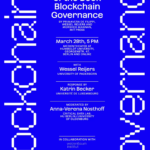
March 28th 2025, 5PM, Medientheater, Humboldt University + Live Stream: Book Launch: Blockchain Governance (MIT Press, by Wessel Reijers, Primavera de Filippi, and Morshed Mannan), with Wessel Reijers and Katrin Becker
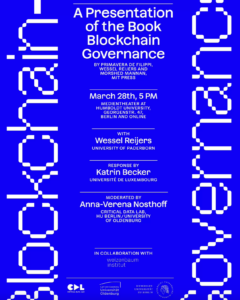 Blockchain Governance
Blockchain GovernanceA Presentation of the Book Blockchain Governance (by Primavera de Filippi, Wessel Reijers and Morshed Mannan, MIT Press)
With
Wessel Reijers (University of Paderborn)Response by
Katrin Becker (Université de Luxembourg)Moderated by
Anna-Verena Nosthoff (Critical Data Lab (HU Berlin/ University of Oldenburg))March 28th, 5 PM
Medientheater at Humboldt University (Georgenstr. 47) and online, in collaboration with Weizenbaum InstituteOnline Participation is possible, drop us a line: info@criticaldatalab.org
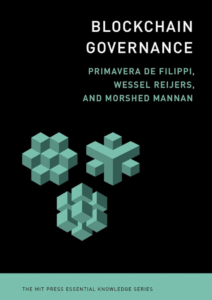
-
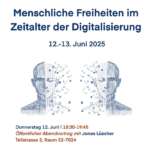
June 13th 2025, 2PM, Tagung: Menschliche Freiheiten in Zeiten der Digitalisierung (Universität St. Gallen)
Politik der dunklen Aufklärung. Dark MAGA und die rechtsautoritäre Wende im Silicon Valley. Vortrag: Prof. Dr. Anna-Verena Nosthoff & Felix Maschewski
-
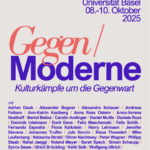
October 8th-10th 2025, conference: Gegen/Moderne – Workshop: Make Social Media Great Again (Universität Basel)
Make Social Media Great Again. Die autoritäre Wende im digitalen Strukturwandel der Öffentlichkeit:
Einem zentralen Mittel und Terrain der Gegenmoderne widmet sich der Workshop mit Adrian Daub (Stanford University), Anna-Verena Nosthoff (Carl von Ossietzky Universität Oldenburg) und Felix Maschewski (Humboldt Universität zu Berlin). Er geht aktuellen tech-autoritären Entwicklungen nach, fokussiert neben medientechnischen Bedingungen vor allem die ideologischen Herkünfte und Verstrickungen (vom Dark Enlightenment bis zu TESCREAL) der sog. «Broligarchie» und fragt: Ist die Tech-Elite nie liberal gewesen? Diskutiert wird in diesem Konnex nicht nur, wie die utopischen Versprechen einstmals als progressiv bzw. emanzipativ gefeierter Technologien in einem (neo-)reaktionären Playbook aufgehen und das soziotechnische Imaginäre prägen, sondern auch, wie eine finanzielle und infrastrukturelle in eine politische (Diskurs-)Macht überführt, die Öffentlichkeit refeudalisiert wird.
-
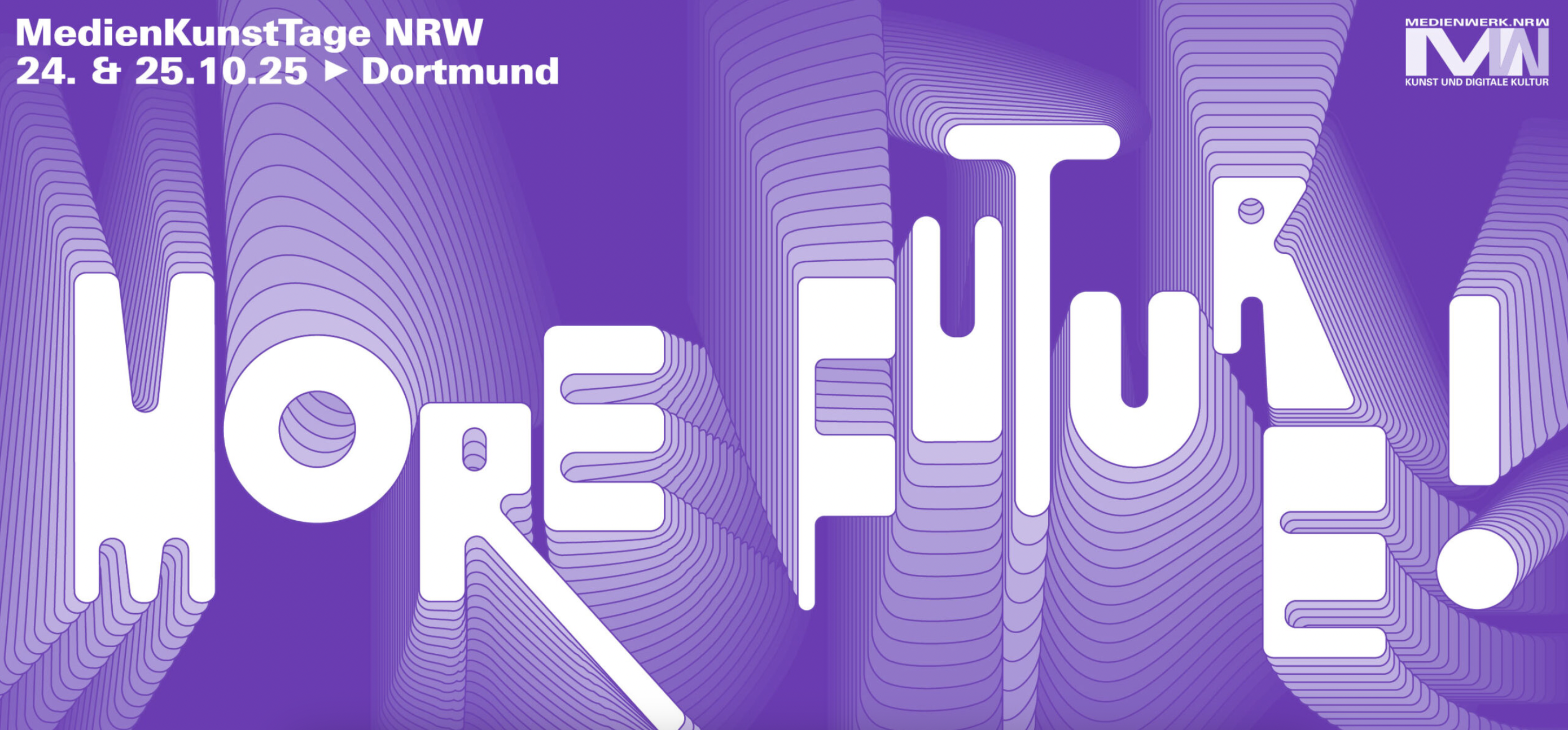
October 24th-25th 2025, MedienKunstTage NRW: More Future (Dortmunder U)
Nicht nur theoretische Reflexionen, sondern auch praktische Erkundungen von Medienkunst führen uns zu den MedienKunstTagen 2025 (24.–25.10.2025, Dortmunder U), die unter dem Motto «More Future in the Sun!» mit Medienkunst, Videoscreenings, Talks und Workshops Zukünfte denkbar machen und Künste als Ort der Visionen verstehen.
Mit Felix Maschewski und Anna-Verena Nosthoff wird unter anderem diskutiert, wie Zukünfte jenseits von Tech-Giganten, Autokratien und neoliberaler Ausbeutung aussehen könnten.
-
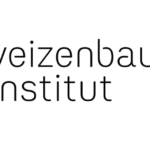
November 20th-21th 2025, Workshop: Generative AI & The Faces of Power (Weizenbaum Institut Berlin)
Dieser Workshop widmet sich der Frage, wie sich die mit Generativer Künstlicher Intelligenz einhergehenden Machtverhältnisse konzeptualisieren lassen.
Der Workshop möchte daher gezielt die Frage in den Mittelpunkt stellen, mit welchen Konzepten und Begriffen sich die Macht von GenKI systematisch konzeptualisieren ließe. Der Workshop versteht sich als Raum, in dem Perspektiven auf die Gesichter der Macht von GenKI in ihrer wechselseitigen Anschlussfähigkeit reflektiert und produktiv wie systematisierend aufeinander bezogen werden sollen. Dieses Raster soll ermöglichen, die Beziehungen zwischen Technologie, Subjekt und Gesellschaft präzise zu erfassen und so die sozialen, ökonomischen und politischen Macht- und Herrschaftsverhältnisse generativer KI kritisch zu reflektieren. Unter anderem mit Anna-Verena Nosthoff
-
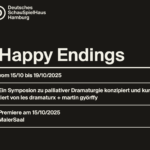
October 15th-19th 2025, Symposion: Happy Endings (Schauspielhaus Hamburg)
Unsere Lebens- und Wirtschaftsweise stößt an planetare Grenzen. Liebgewonnene Gewissheiten erodieren. Und die Kommunikation hierüber steckt in einem Dilemma: Betonen wir die Fakten zum Stand der Dinge, laufen wir Gefahr, Hoffnungslosigkeit und gesellschaftliche Lähmung zu befeuern. Verlegen wir uns darauf, über die kleinen Schritte in die richtige Richtung zu sprechen, verharmlosen wir die Situation. Beides hilft nicht weiter. Frei nach Heiner Müllers Diktum „Nekrophilie ist Liebe zur Zukunft!“ versucht die palliative Dramaturgie die Zukunft vom Ende her zu denken. Anna-Verena Nosthoff, Felix Maschewski und Philipp Staab (HU Berlin) über gutes und schlechtes Enden bzw. über den (Post-)Solutionismus im digitalen Zeitalter.
-
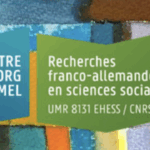
September 22nd-23rd 2025, conference: Algorithmic (Dis-)Orders: Law and Culture in Transition (Centre Georg Simmel-EHESS, Paris)
The conference will provide a platform to explore key questions surrounding the digital transformation of law from legal, sociological, philosophical and historical perspectives, while outlining new pathways for a law and a society increasingly shaped by digital technologies.At its core, the conference will examine how digital technologies such as artificial intelligence, blockchain, and data-driven systems are transforming paradigms in law and governance that fundamentally have shaped our culture. It will explore how these technologies produce new forms of normativity, challenge traditional concepts like justice, accountability, or legitimacy, and potentially open up new challenges and opportunities for social cohesion and equitable regulation.Bringing together experts in digital philosophy, sociology, law and legal philosophy, the conference aims to foster interdisciplinary reflections on the future of law and governance. It offers a framework for critical analysis of current technological developments and their impact on the foundations of law and social life.Centre Georg Simmel-EHESS) 22 & 23 September 2025, EHESS (AS1_24) – 54 boulevard Raspail, 75006 Paris -

November 24th 2025, Vortrag: Über Postsolutionismus: Space Colonisation im technofaschistischen Zeitalter (Schlaues Haus, Oldenburg)
Über Postsolutionismus: Space Colonisation im technofaschistischen Zeitalter
“Making life multi-planetary”, “building Orbital Reef”, “colonizing Mars” – Elon Musks und Jeff Bezos’ Pläne der Weltraumbesiedelung klingen futuristisch und bestimmen doch einen ganz gegenwärtigen Perspektivwechsel im Silicon Valley. Denn war die Weltverbesserung oder das Lösen von gesellschaftlichen Problemen lange ein Verkaufsargument der Technologen, projektieren sie nun extraterrestrische ‘Lösungen’, die sich von den Schwerkräften der Erde, von ihren Problemen selbst lösen. Ziel des Vortrags von Anna-Verena Nosthoff und Felix Maschewski ist es nicht nur, über die historischen, ästhetischen und ideologischen Hintergründe der „imaginierten Zukünfte“ von Musk und Co. die postsolutionische Wende, sondern dabei auch machtpolitische Motive zu akzentuieren; aufzuzeigen, wie die libertären Träume vom „free space“ in autoritäre beziehungsweise technofaschistische Phantasmen kippen. Oder in Musks Worten: „Fuck earth! Who cares about earth?”
Schlaues Haus Oldenburg, Schloßplatz 16
26122 Oldenburg -

October 16th-17th 2025, Workshop: Critical Theory of the Computational (Weizenbaum Institute Berlin)
This workshop takes stock of a Critical Theory of the Computational. It engages critical theories (both in the tradition of the Frankfurt School and beyond) in order to examine how computational/digital constellations are shaping (upheaving, consolidating, etc.) foundational dynamics in society, and how said computational constellations are themselves embedded in ongoing planetary transformations (such as global heating). In interrogating possible preconceptions and assumptions entrenched in critical theories—such as human exceptionalism, and universalist aspirations—, we ask how these might be rethought in light of computational and planetary transformations.
Panel 2: Computational Capitalism and the Reimagining of Critical Reflexivity, 16.10.2025, 13:30-15:30:
Chair: Sebastian Berg
Florian Butollo
Anna Verena Nosthoff
Sebastian SevignaniWeizenbaum-Institut, Hardenbergstr. 32, 10623 Berlin
-
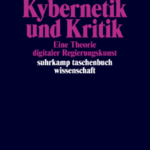
Jan 26th, 2026, 6.30PM: Future Histories Live: Kybernetik und Kritik. Eine Theorie digitaler Regierungskunst (Suhrkamp Verlag)/ Anna-Verena Nosthoff im Gespräch mit Jan Groos
Future Histories Live
Kybernetik und Kritik
Eine Theorie digitaler Regierungskunst
(Suhrkamp Verlag)Anna-Verena Nosthoff im Gespräch mit Jan Groos
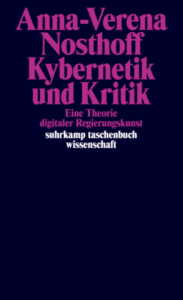
veranstaltet vom Future Histories Lab in Kollaboration mit dem Critical Data Lab
26.01.2026, 18.30 Uhr
Medientheater
Humboldt-Universität zu Berlin
Georgenstr. 47
10117 Berlin -
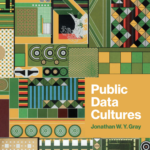
Feb 2nd, 2026, 2PM: Jonathan Gray, Public Data Cultures (Get Together)
Prof. Dr. Shintaro Miyazaki invites you to join for a conversation, discussion and get-together with author of Public Data Cultures Jonathan W. Y. Gray on 02.02.2026. The author will present and talk about his work from 14:00 to 16:00 at the Medientheater, Georgenstr. 47.
Public Data Cultures discusses critical and creative engagements with public data as cultural material, medium of participation and as site of transnational politics. It explores how activists, journalists, artists and others work with public data as well as looking at how critical perspectives can make a difference in practice. The author states, that „(…) this book is essential reading for students and scholars of media, communications, Internet studies, science and technology studies and digital humanities, as well as artists, designers, engineers, reporters, public sector workers, community organisers and activists working with data.“
Jonathan W. Y. Gray (@jwyg) explores the roles digital data, methods and infrastructures in shaping how we know and live together. At King’s College London, he is a Reader in Critical Infrastructure Studies at the Department of Digital Humanities and co-director of the Centre for Digital Culture. He is also co-founder of the Public Data Lab; research associate at the Digital Methods Initiative (University of Amsterdam) and the médialab (Sciences Po, Paris); and has taught with the School for Poetic Computation in NYC. More about his work can be found at jonathangray.org.
After a short talk, there will be opportunities for collective discussion and time to catch up with others with overlapping curiosities. Coffee and snacks will be provided.
The event will be held in English. Every person who is interested is welcome to join. Facilities are wheelchair-accessible.
-

February 4th, 2026, 5:30pm: Buchpräsentation Universität Konstanz
Universität Konstanz
BischofsvillaOtto-Adam-Str. 578467KonstanzDeutschlandAnna-Verena Nosthoff präsentiert Kybernetik und Kritik. Eine Theorie digitaler Regierungskunst
Moderation: Christopher MöllmannEine Veranstaltung des Zentrums für Kulturwissenschaftliche Forschung
-
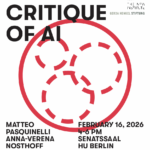
February 16th, 2026, 6pm: Critique of AI, Humboldt Universität zu Berlin
Humboldt-Universität zu Berlin
SenatssaalUnter den Linden 610117BerlinDeutschlandIm Rahmen der Veranstaltung »Critique of AI«
Anna-Verena Nosthoff, Matteo Pasquinelli, Roland Meyer und Rainer Müllhoff
Moderation: Jacob BlumenfeldEine Veranstaltung des Centre for Social Critique, der Humboldt-Universität zu Berlin und der Freien Universität Berlin
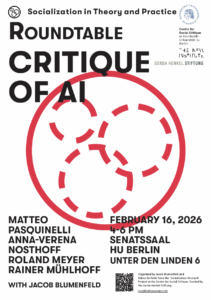
Cooperation partners

Berliner Gazette
Berliner Gazette (BG) is a nonprofit and nonpartisan team of journalists, researchers, artists and coders, experimenting with and analyzing emerging cultural and political practices. Since 1999 we have been publishing berlinergazette.de under a Creative Commons License with more than 1,000 contributors from all over the world. In dialogue with our network we create annual projects, exploring the issues at hand not only in the form of text series but also conferences and books. The latest BG projects include Black Box East (2021), Silent Works (2020), More World (2019), Ambient Revolts (2018), Signals (2017), A Field Guide to the Snowden Files (2017), Friendly Fire (2017), Tacit Futures (2016), UN|COMMONS (2015), BQV (2012), and McDeutsch (2006).
The Institute of Network Cultures
The Institute of Network Cultures (INC) analyzes and shapes the terrain of network cultures through events, publications, and online dialogue. Its projects evolve around urgent publishing, alternative revenue models, critical design and making, digital counter culture and much more.
Zentrum für Netzkunst/ Center for Net Art
The Zentrum für Netzkunst (center for net art) reconstructs, maintains and preserves net art and net culture. The initiative researches archiving and contextualization of net art. The center for net art has been a pioneer user in the house of statistics since september 2019 and is funded by the Kulturamt Berlin Mitte for the exhibition “stick.t.me” (june 2020). Until the foundation of the association, the members of the center for network art have realized exhibition and publication projects in various cooperations, such as: „en plein air. ethnographies of the digital“ (2019, funded by the federal cultural foundation), „Zentrum für Netzkunst, then and now «(2018, funded by the senate department for culture and Europe), and» warehouse. industries ”(2017, funded by the German federal cultural foundation). Members of the association are: !mediengruppe bitnik, Tereza Havlíková, Paloma Oliveira, Anneliese Ostertag, Tabea Rossol, Robert Sakrowski and Cornelia Sollfrank.
Rat für Digitale Ökologie/ Council for Digital Ecology
The transdisciplinary Rat für Digitale Ökologie (Council for Digital Ecology) has tasked itself with freeing the digital transformation of society from the limitations of a purely business- and technology-driven view. Since the digital transformation affects all areas of democratic society and because the economic, cultural, political, psychological and health dimensions of the digital transformation are interrelated, a policy of digital transformation is conceivable only against the backdrop of an ecology of digital systems. The RDÖ is committed to initiate debates and to make the digital transformation a central sociopolitical issue.
IT For change
IT for Change is an NGO based in Bengaluru, India and aims for a society in which digital technologies contribute to human rights, social justice and equity. ITfC’s work in the areas ofeducation, gender, governance, community informatics and internet/digital policies push the boundaries of existing vocabulary and practice, exploring new development and social change frameworks. Details on ITfC’s research and advocacy can be accessed at www.itforchange.net.
Kritische Kommunikationswissenschaft / Network for critical communication studies
The Network for Critical Communication Studies is a network for critical research and teaching on media and communication. Further info is available here.
new now festival
NEW NOW is the Festival for Digital Arts at Zollverein UNESCO World Heritage in Essen. Every two years, it transforms the Mixing Plant on the former Coking Plant on the coal mine industrial complex into a production site for Digital Arts. NEW NOW invites artists to show new works in spectacular surroundings and to produce site-specific works.
rosa-luxemburg-foundation
The Rosa Luxemburg Foundation is one of the largest political education institutions in the Federal Republic of Germany. The foundation promotes a critical analysis of society and fosters networks of emancipatory political, social, and cultural initiatives. Internationally, it participates in cooperative development projects and advocates for a dialogue between the Global North and South conducted on equal footing.
Weizenbaum institute
The Weizenbaum Institute conducts excellent, independent, interdisciplinary and fundamental digitalization research. We provide politics, business and civil society with well-founded findings and value-based recommendations for action and help to ensure that digitalization and networking are not only better understood, but can also be shaped in a sustainable, self-determined and responsible manner. The Weizenbaum Institute was founded in 2017 and is funded by the Federal Ministry of Education and Research and the State of Berlin. It was named after the German-American computer science pioneer and critic Joseph Weizenbaum.


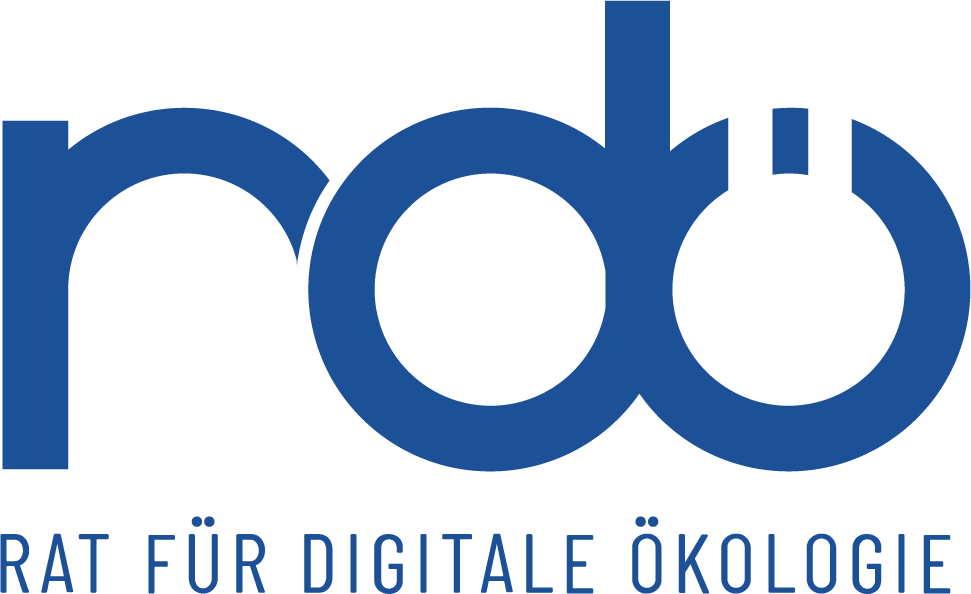

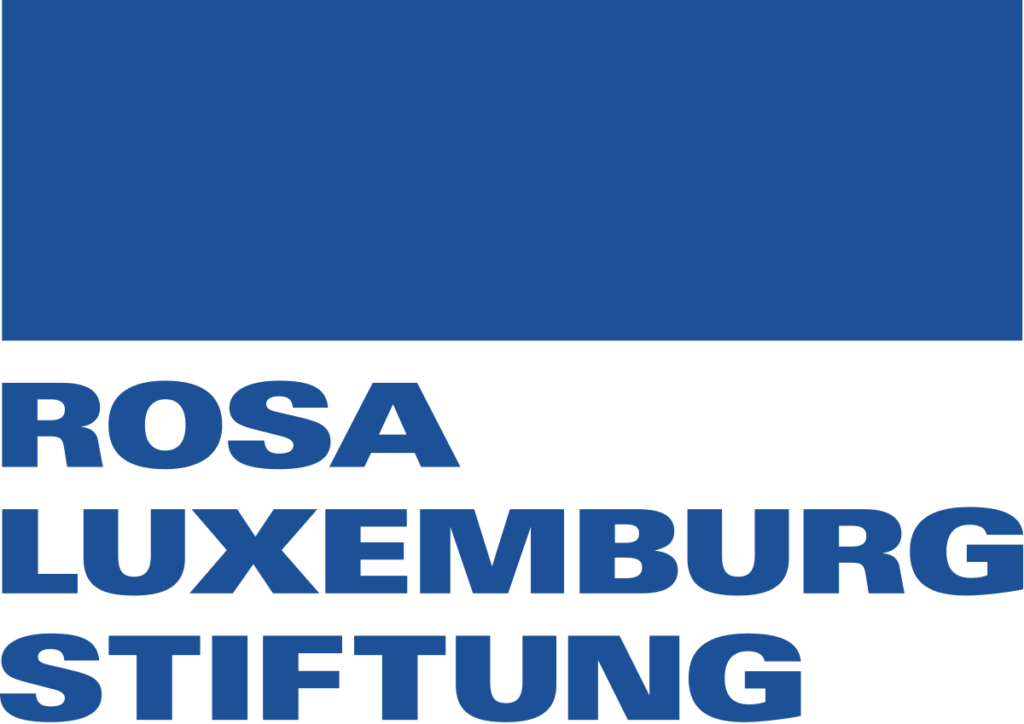
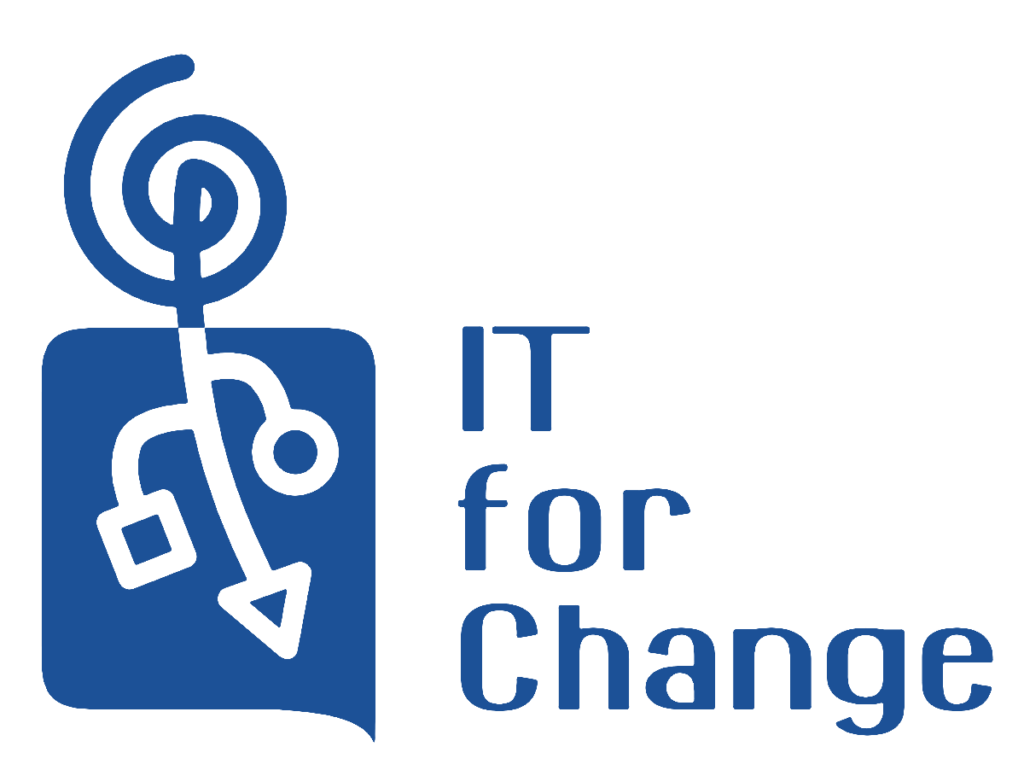

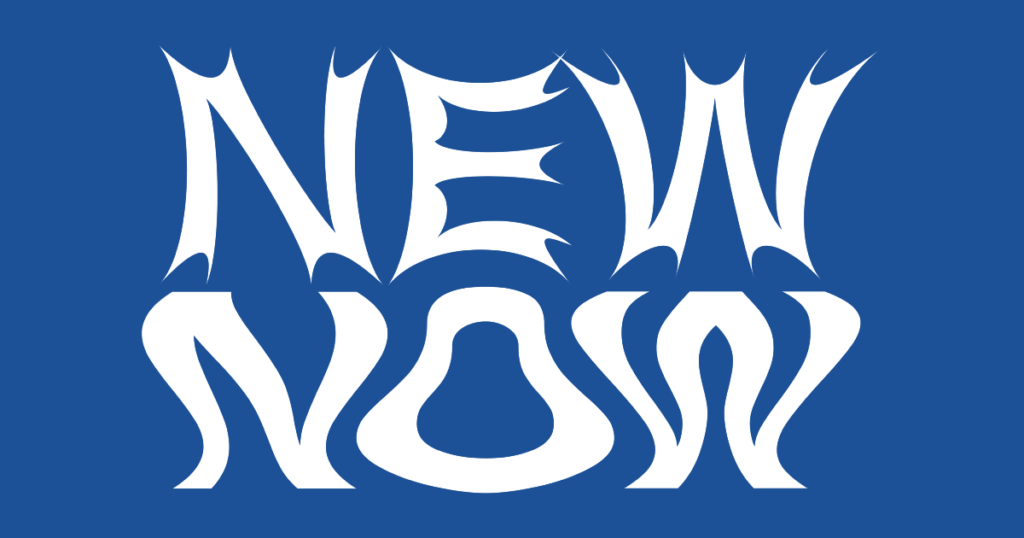

Newsletter
subscribe now
Get the Critical Data Lab newsletter and stay up to date on our current projects, new publications and events.
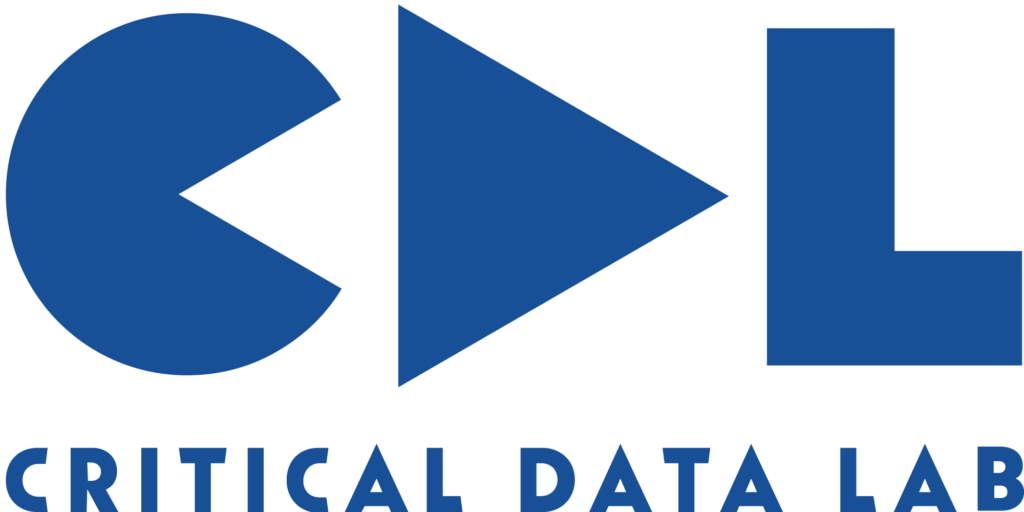
Contact
Do you have any further questions about the lab? Just fill out the contact form below and we’ll get back to you. You can also send us an email: info@criticaldatalab.org. We also welcome requests by potential collaboration partners and researchers working on related topics.